
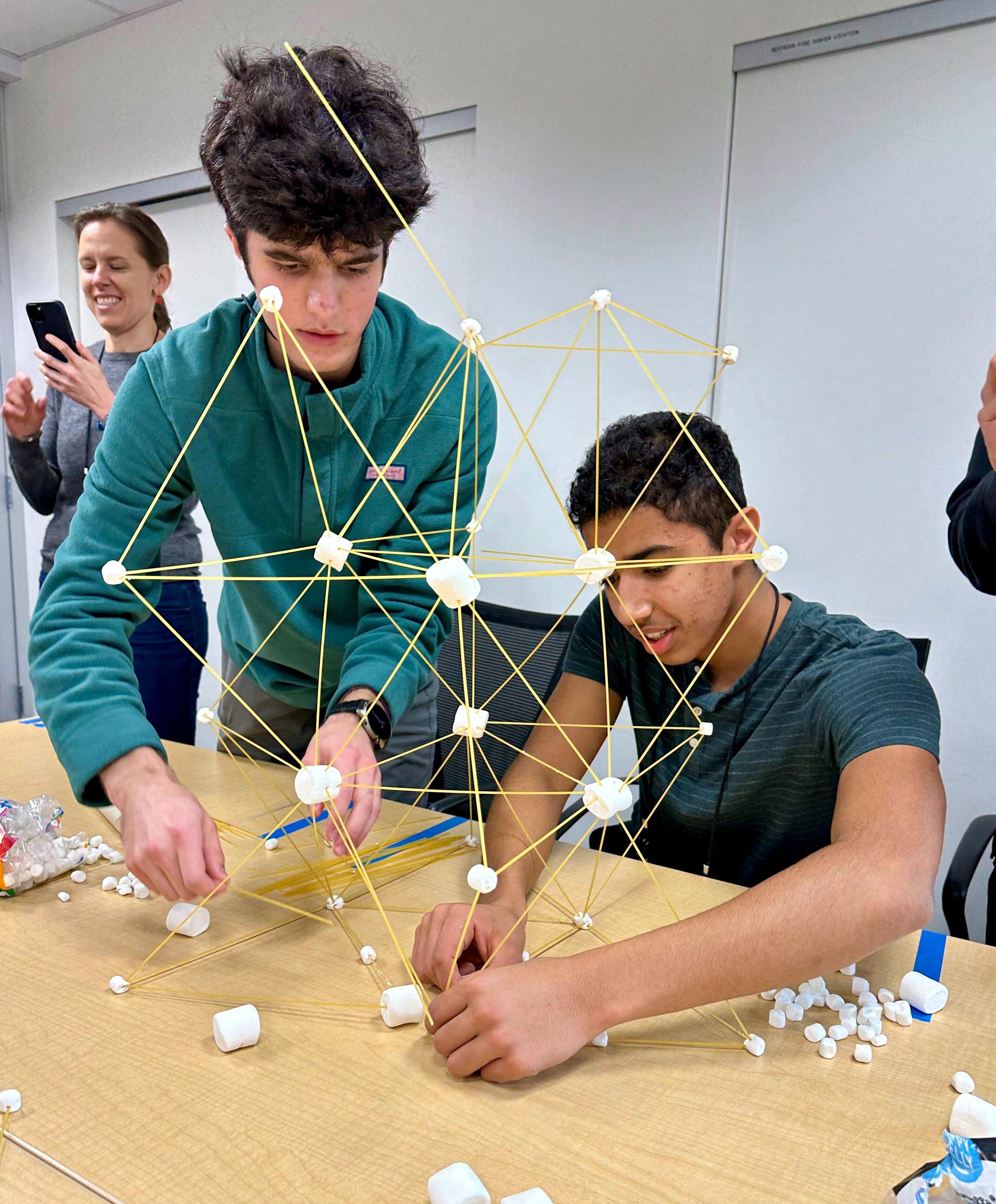
March 2024 - Issue 03 CONNECTION
4SEE PHOTOS STARTING ON PG.
8
PIXEL FESTIVAL FUN

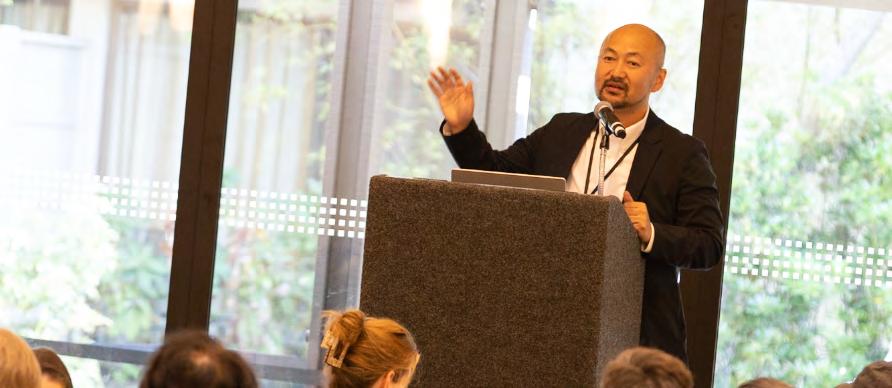
Letter From the Head of School
As we navigate through this semester, we see our schedules filling with exciting learning opportunities and community events. I hope you all are enjoying this journey and experiences!
The season though, is one of the year’s busiest. So, please remember that support is always available. We encourage students to reach out to their instructors and student support staff whenever help is needed, while fully taking advantage of opportunities for learning and fun.
In this issue of the Stanford OHS Connection, we are excited to highlight the wonderful achievements and vibrant activities that have defined our academic year so far. From exceptional student projects to innovative teaching strategies, join us in celebrating the great moments of this year, and looking forward to the opportunities that lie ahead.
Dr. Tomohiro Hoshi Head of School
02
Stanford OHS MeetUps


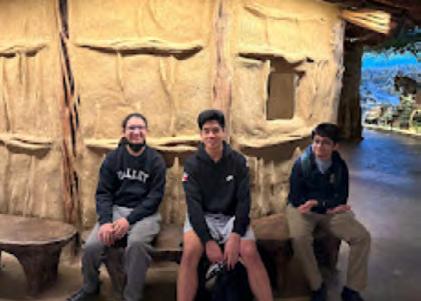



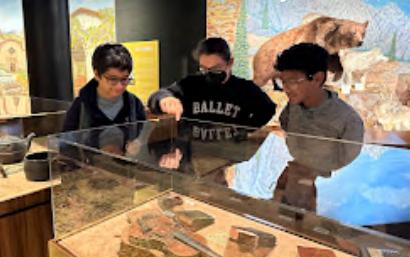
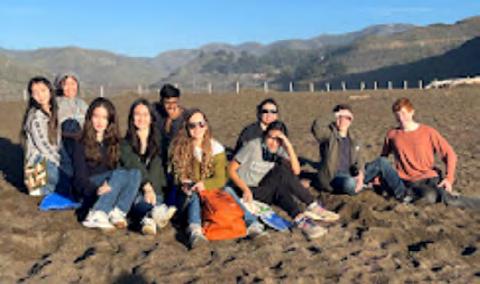

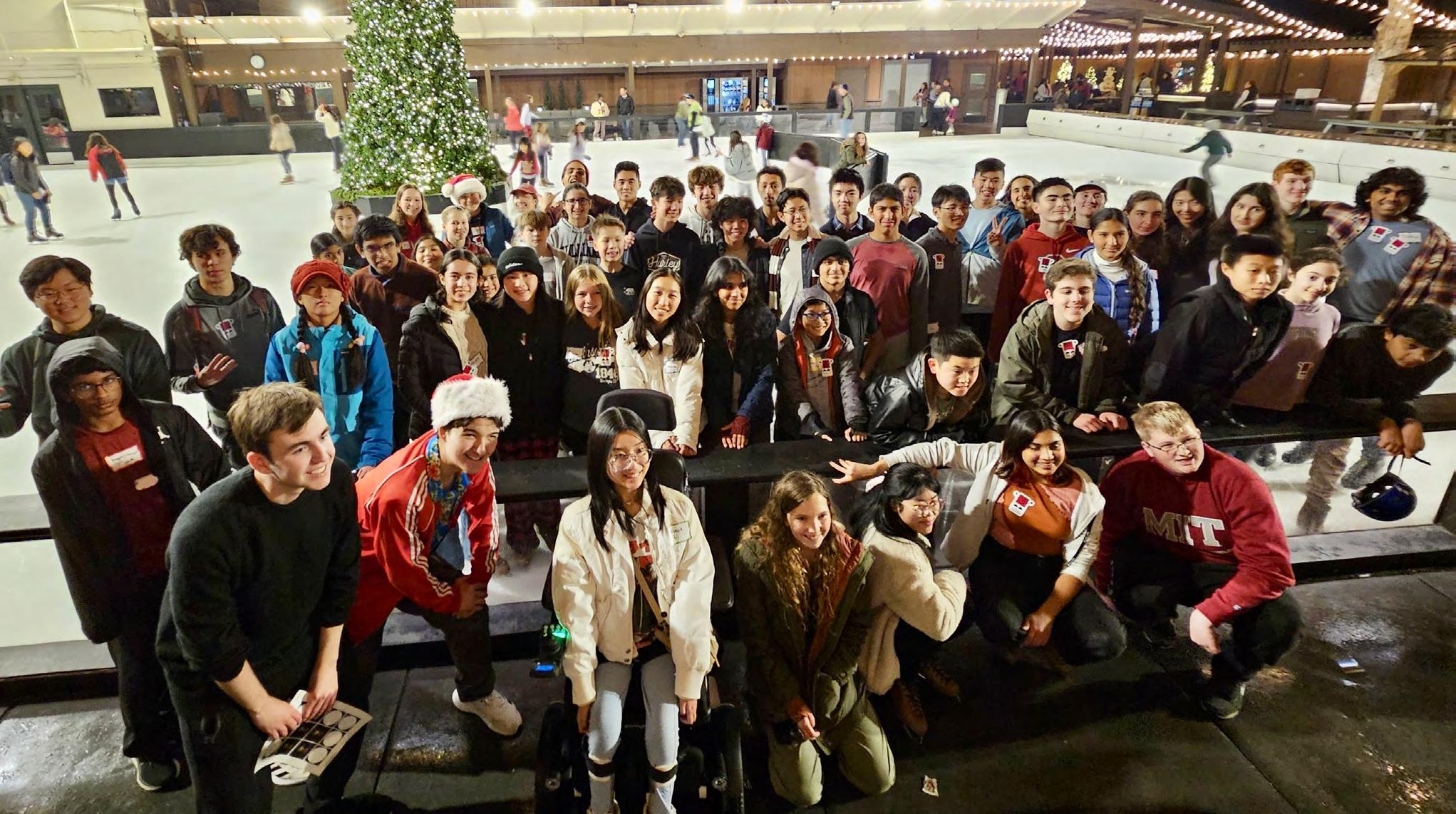
03
6Kennedy Center, Washington, D.C.
6Blackhawk Museum, Danville, CA
6Marine Mammal Center, Sausalito, CA
6UC Botanical Garden, Berkeley, CA
6Winter Lodge, Palo Alto, CA
COMMUNITY
Stanford OHS Updates Course Catalog
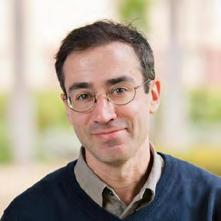
It’s already the time of year when Stanford OHS students begin to request courses for the 2024-2025 academic year, so I wanted to highlight a few additions to our course catalog.
Of particular note, Stanford OHS instructors have developed exciting new courses to replace the AP courses in their disciplines.
The English Division now offers Critical Theory: Language and Culture, which replaces AP Language and Composition and builds directly on earlier courses in the English sequence. Students retain the option to take already existing critical theory courses, including Critical Theory and the Historical Imagination, Critical Theory of the Anthropocene, and Critical Theory: Canon & Counter-Canon.
Meanwhile, the Science Division is excited to teach two new courses. As a replacement for AP Chemistry, Analytic & Organic Chemistry creates space for students to learn about topics in Organic Chemistry. Additionally, Analytical Physics: Mechanics and Electricity & Magnetism is a year-long course specially designed to meet the needs of Stanford OHS students.
Turning to Mathematics, Computer
Science, and Economics, instructors are rolling out Statistics and Data Analysis, Object Oriented Programming and Design, and Microeconomic Theory. By removing some of the focus on AP exams, instructors of these courses will be able to deepen their approach to key topics and refine assessments to aid student learning.
Students who are eligible for Advanced Topics courses will find new options in the Core Division. In the fall, Heather WalkerDale will teach—for a second time—an Advanced Topics in Philosophy seminar on The Nature of Tomorrow. In the spring, Lisa Hicks will offer a new course that delves into mystery novels and the philosophy of literature. The English Division will once again offer Writing Across the Pacific, taught by Kathleen Washburn, in the fall semester. Meg Lamont will take an interdisciplinary approach to Narrating the Nation: Medieval and Modern in the spring.
For more information about the wide range of courses at Stanford OHS, be sure to consult the course catalog. Remember that your academic advisor is always an essential resource for course planning.
I hope the spring semester goes well, and that everyone is looking forward to next year!


 Assistant Head of School
Anthony Smith
Assistant Head of School
Anthony Smith
ACADEMICS 04

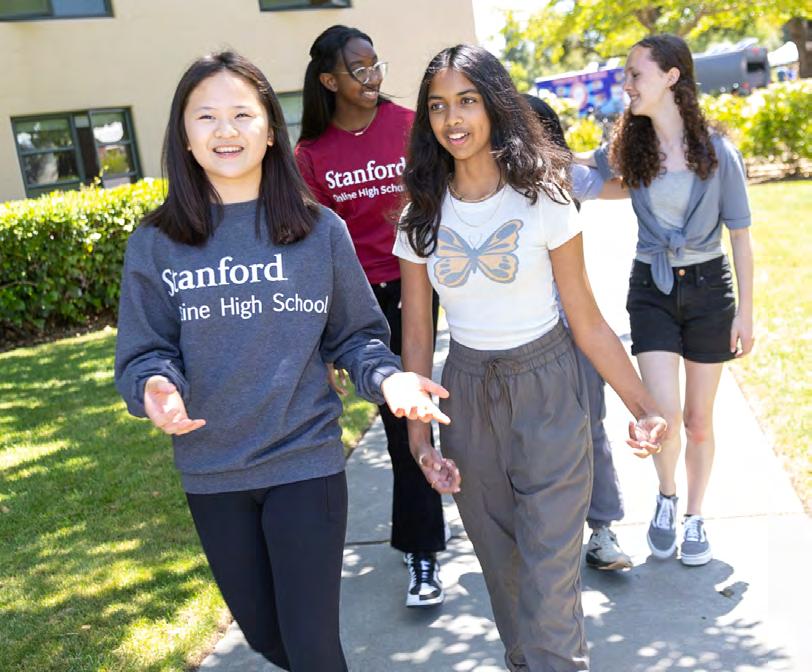

05
Trending Club News

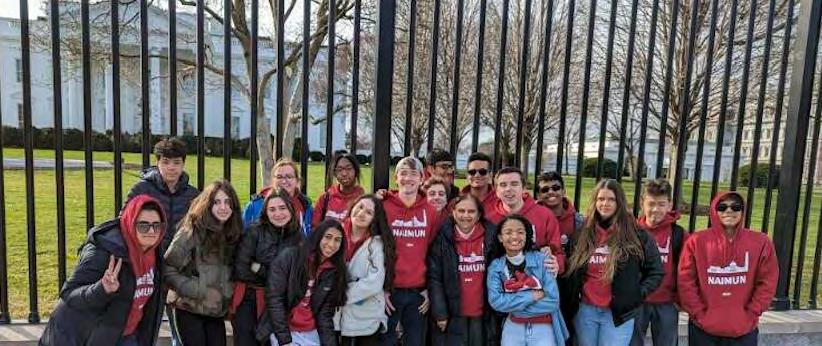

MUN Nations Team Convenes in Washington, D.C.
Students from the Model United Nations team at Stanford OHS recently had the opportunity to visit Washington, D.C. to participate in the 61st North American Invitational Model United Nations (NAIMUN) conference. The team flew in from around the world to attend the conference. Throughout the conference, students had the opportunity to hear from an array of speakers including Ambassadors, Foreign Dignitaries, and a former Solicitor General of the United States. Members also had the opportunity to hear from Gabe Fleischer, a student mentor, on his work with Wake Up to Politics a successful daily newsletter outlining actions taken by the Executive, Legislative, and Judicial branches of government.
At NAIMUN, students actively engaged in lively debates and crafted unique legislation in 12 different committees ranging from General Assemblies to the Supreme Court of the United States, and a crisis committee on the Icelandic Financial Collapse of 2008. At the conference, students were able to partake in programming including a tour of the Washington Monument, a delegate dance, and watched unique performances from student groups at Georgetown University. One unique aspect of the conference was that
students were able to engage with former Stanford OHS students and current Georgetown students in various committees including Jacob B. (’22) who was one of the Chairs on the Supreme Court of the United States.
This year, our international delegation was able to win multiple awards including Verbal Commendation Awards and the Book Award. These awards outline the hard work that students put into preparing for the conference. The Book Award is given to delegates who show the greatest amount of applied preparation for the conference in the form of subject-matter knowledge applied in the committee through speaking, writing, and collaboration. The Verbal Commendation award is given to delegates who can eloquently and precisely outline their countries’ position, policies, and commitments throughout the committee in the form of public speaking.

Those who attended NAIMUN this year engaged in rigorous preparation for the conference ranging from writing position papers to conducting research on the notable public figures and countries that students represented. Before attending the conference, students familiarized themselves with the various forms of parliamentary procedure used in their committees, and conducted debates on the topics discussed at NAIMUN to gain practice and expertise into their positions and topics at NAIMUN.
From the beginning of the school year in August 2023 to February 2024 students prepared for the NAIMUN conference under the direction of the team leaders. None of the preparation would have been possible without the support of the Model U.N. leaders: Andy D. (President), Jordan B. (Vice-President), and Adam C. (Vice-President), who acted under the supervision and guidance of Dr. Tracy Steele (Sponsor), Ms. Revathi Sundaresan (Sponsor and Chaperone), and Ms. Salam Mustafa (Chaperone).
The Model United Nations team is thankful for all of the support from the school, parents, and faculty members who made this trip possible.
ANNOUNCEMENTS & NEWS
Mathematics Instructor
Stanford OHS student
Revathi Sundaresan
06
Andy D.
PERSONAL SUPPORT TIPS FOR THE SPRING SEMESTER
We, in the Stanford OHS Counseling Office, hope that all our students are having an enjoyable and successful spring semester! We encourage you to reach out to us anytime to discuss something you may be struggling with, to plan ahead for the later part of the school year, or just to say hello. You can find contact information for Stanford OHS counselors in the Student Community & Resources pages in Canvas, or you are always welcome to reach out to us at ohscounseling@stanford.edu
In this article, we want to share some thoughts and suggestions for midterm season and for the remainder of spring semester.
GETTING ORGANIZED
It can help to be prepared for a busy period such as midterm season by planning ahead. Which of your courses have midterm exams? When are these exams scheduled? What other major assignments such as essays or projects are coming due around the same time? If you know in advance that a particular week may be unusually busy, you may be able to employ strategies such as allotting a suitable amount of time for each task or setting your own target completion dates for assignments in order to space them out.
MAINTAINING WELLNESS
During times when it feels like there are too many things to do, it may be difficult to keep up your regular routine to support your own wellness. However, such times may also be when self-care is most crucial! Do what you can to fit in some physical activity, aim to eat healthy meals, and don’t overlook the critical need to get sufficient sleep. In the realm of wellness, perfection is
not the goal. Instead, give yourself credit for remembering that your own well-being is of key importance, especially when life is hectic and stressful.
EXAM TIPS
Now that you have upcoming midterm exams on your calendar, you can consider how to best prepare for each one. Gather as much information as you can, and pay close attention to your teacher’s suggestions and instructions. What content is to be covered on the test? What types of questions should you be prepared to answer? For year-long courses, will the test format likely be similar to what you experienced with the fall midterm or final exam? Plan to begin actively reviewing material well before the test date, and make good use of any study guides, review problems, or practice exams provided by your instructor.
STRESS MANAGEMENT
Whether for the purpose of staying focused during a midterm exam or to sustain yourself through midterm season, there are a variety of stress management tools and approaches you may find useful. These include breathing techniques, mindfulness tools, progressive muscle relaxation, and others. If you have had difficulty on major exams in the past because you felt flustered or anxious during the test, it can be beneficial to plan ahead, practice in advance, and have some supportive tools ready for exam day. Your counselor can help with this process!
In addition to the contact information for your Stanford OHS counselor, the counseling Student Community & Resources pages in Canvas provide many resources you may find beneficial. Remember that you are always welcome to reach out to us for assistance (ohscounseling@stanford. edu). Take good care of yourself as you face the challenge of successfully navigating your spring semester at Stanford OHS. We know you can do it!


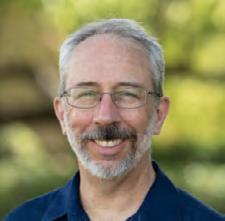 by Dr. Greg Nuckols
Director of Counseling
by Dr. Greg Nuckols
Director of Counseling
COUNSELING
07
 by Marra DeGraff Special Advisor to Student Life
by Marra DeGraff Special Advisor to Student Life

Joyful Students Unite at Pixel Festival
It was a joy seeing the students and family members who were able to join us for Pixel Festival 2024, both online and in person! Attendees had a packed schedule with opportunities to bond with their peers during grade-level activities, exhibit their knowledge and talents at the student showcase, engage in student activity courses and field trips — including arts and craft, board games and video games, and a visit to the Cantor Arts Museum — and dance the night away at the whimsically decorated butterfly gardenthemed Winter Formal.
Online attendees had a showcase of their own, with a lineup of inspiring performances. They also enjoyed a unique selection of student activity courses and family sessions. Both in-person and online attendees were able to enjoy the presentation on the evolution of the human perspective on revolutions through time by the esteemed Dr. Dan Edelstein, this year’s keynote speaker.
It’s always a wonderful experience when the Stanford OHS community gathers, and whether or not you were able to join us this time around, we hope to see you at a future event!

STUDENT LIFE 08

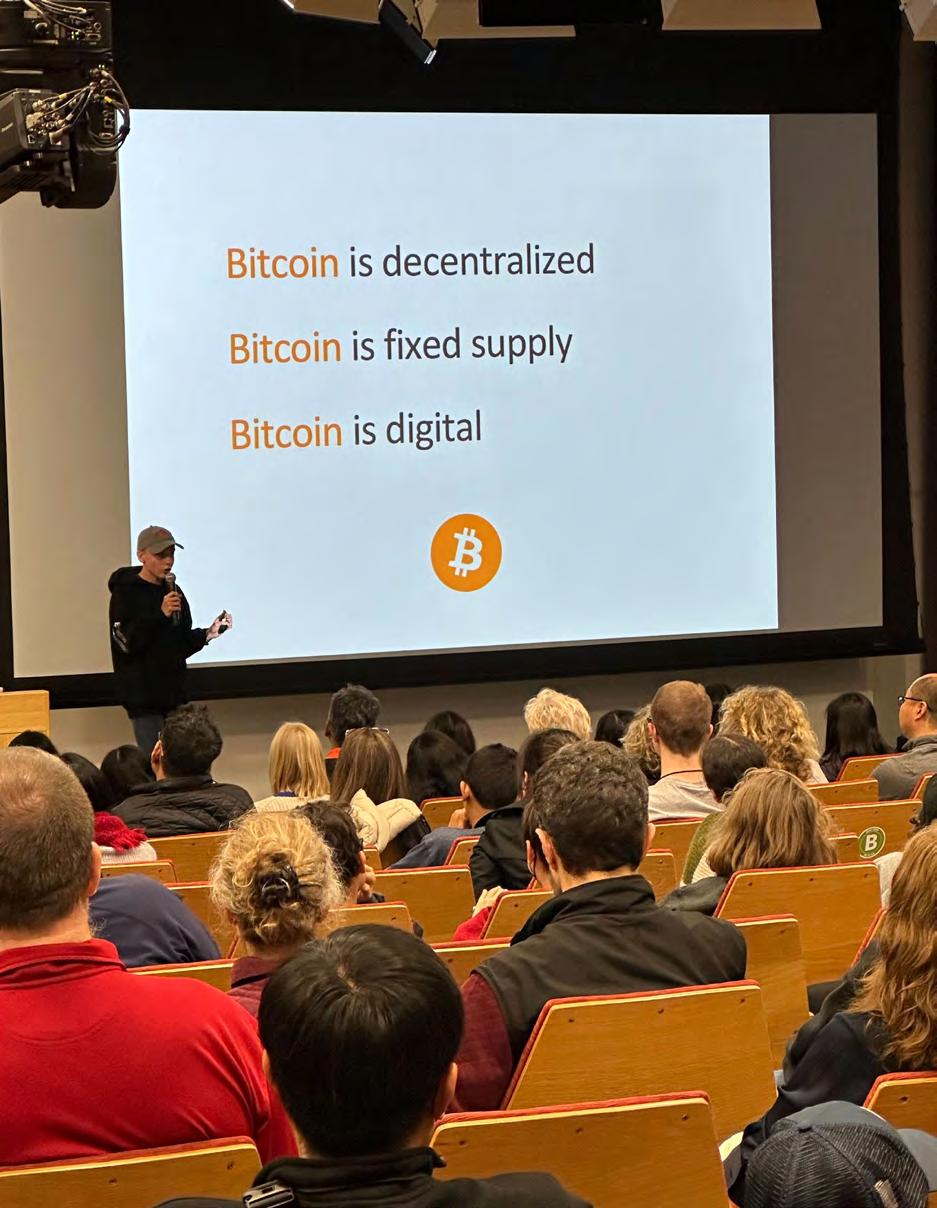
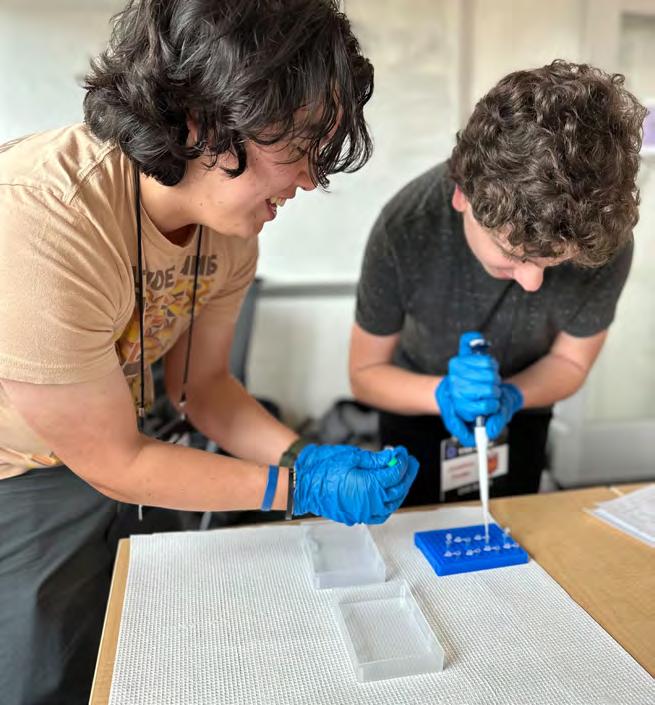
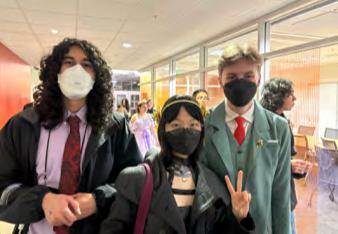
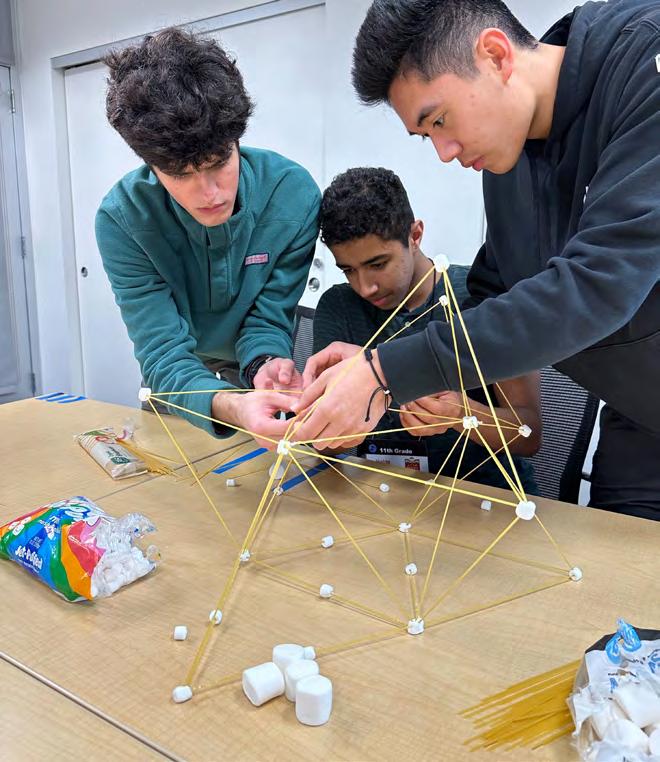

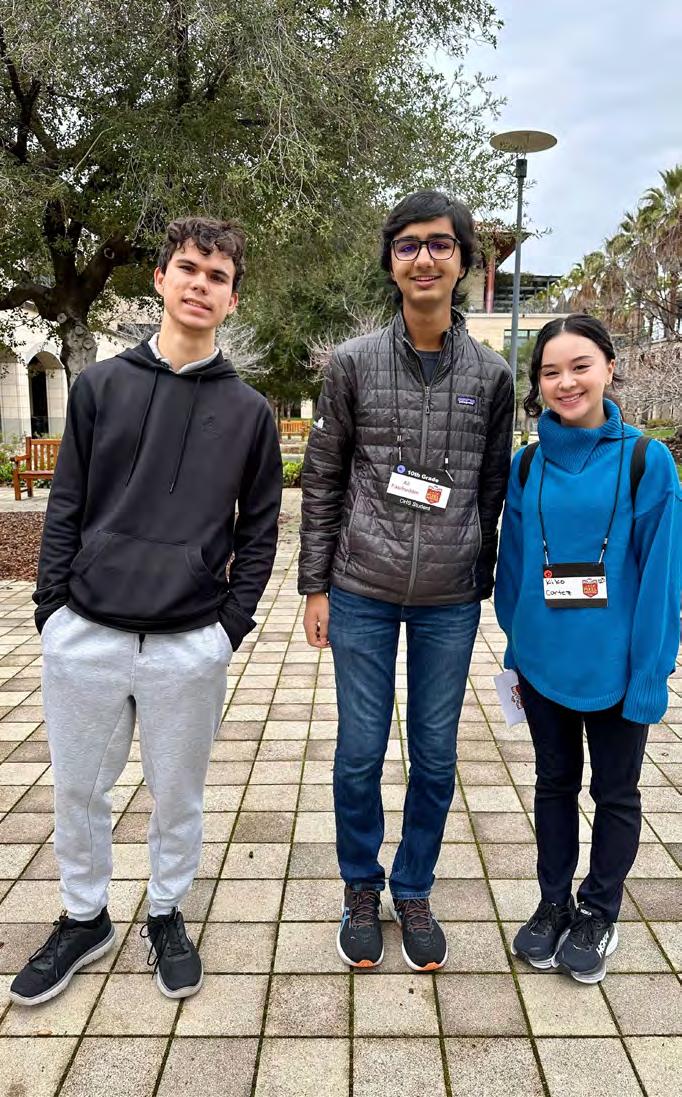
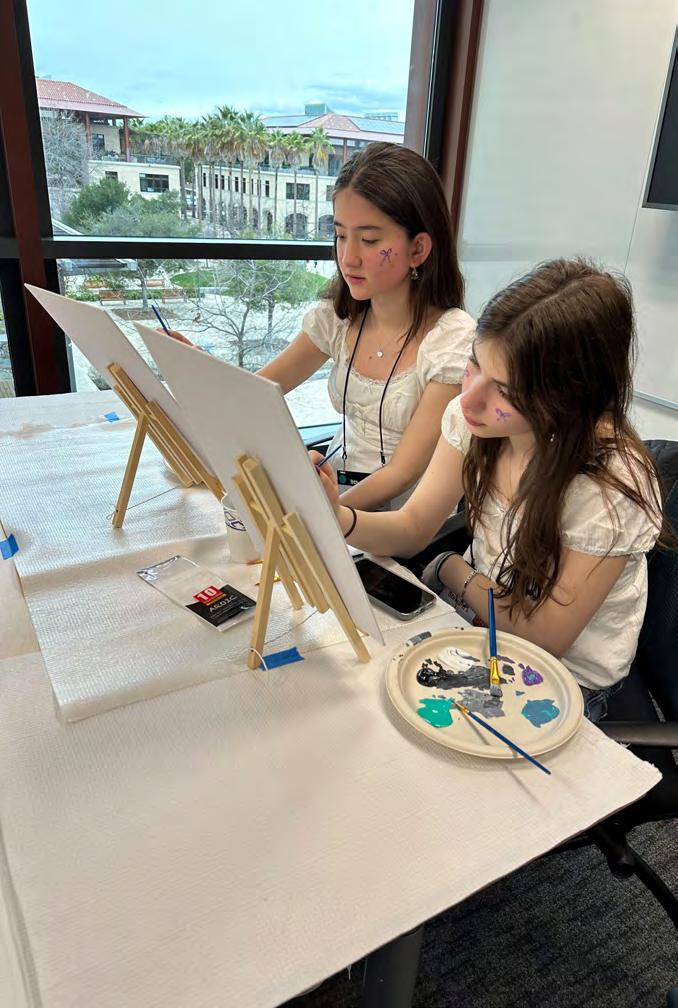

09
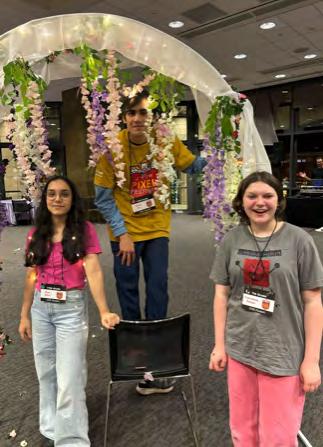
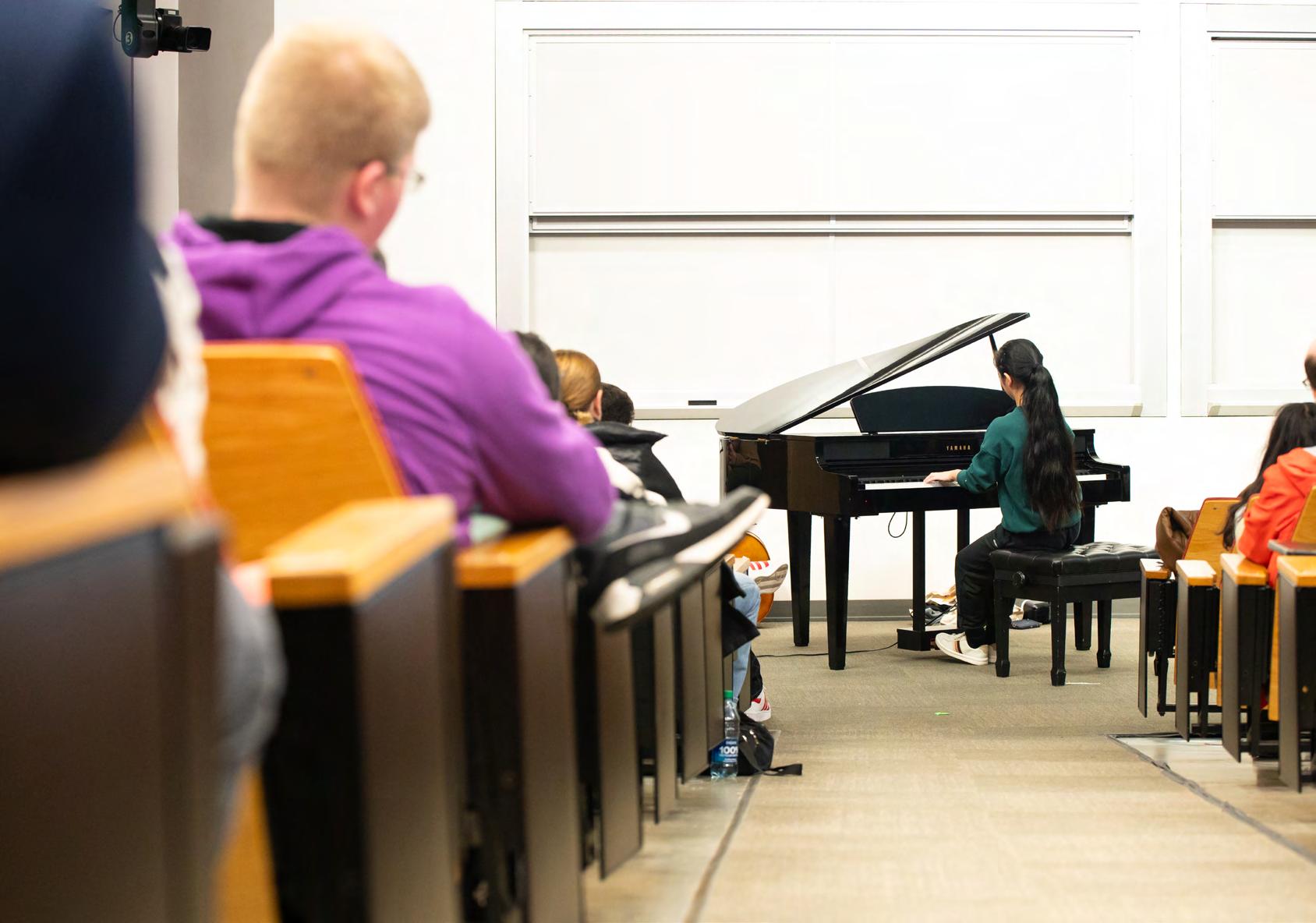
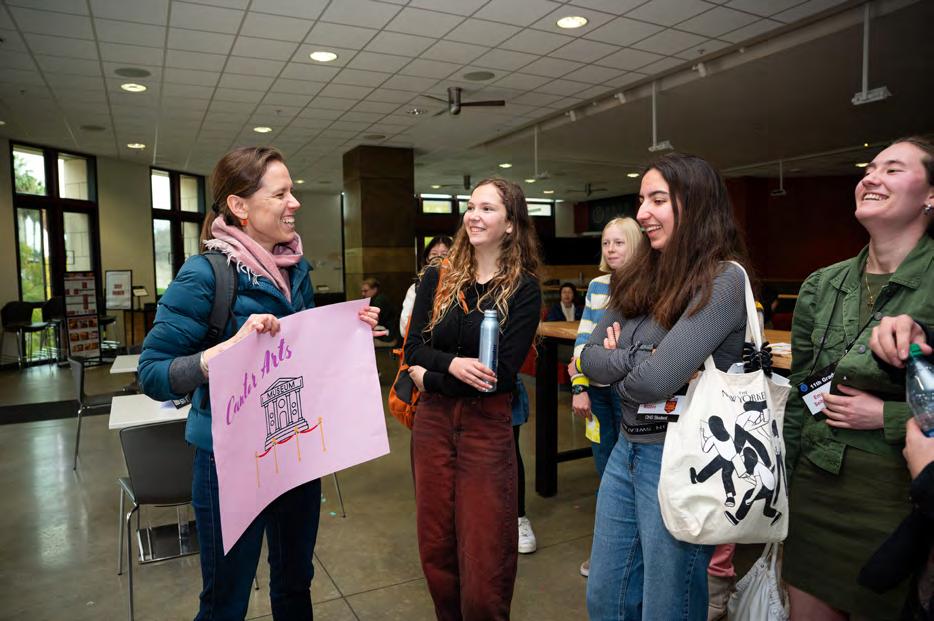
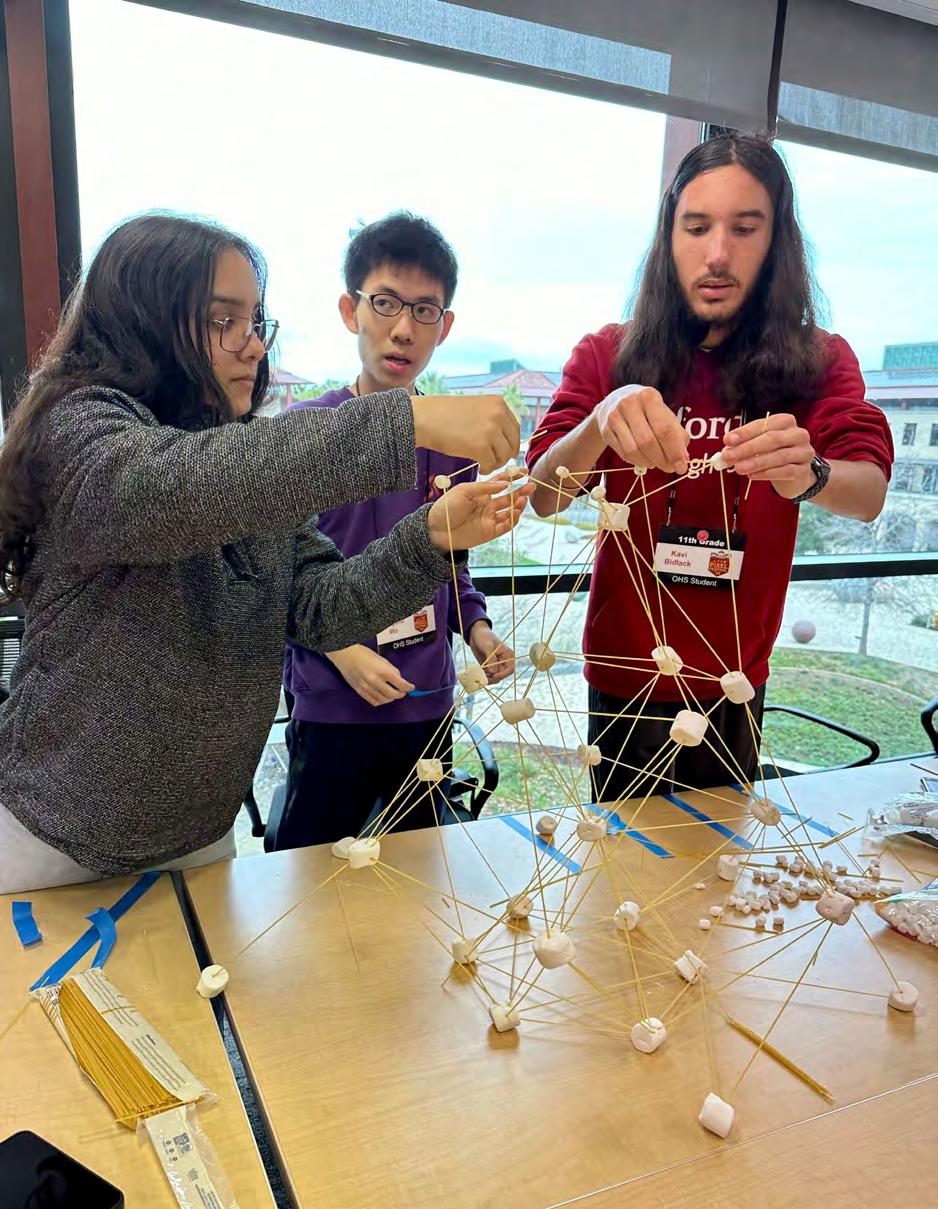
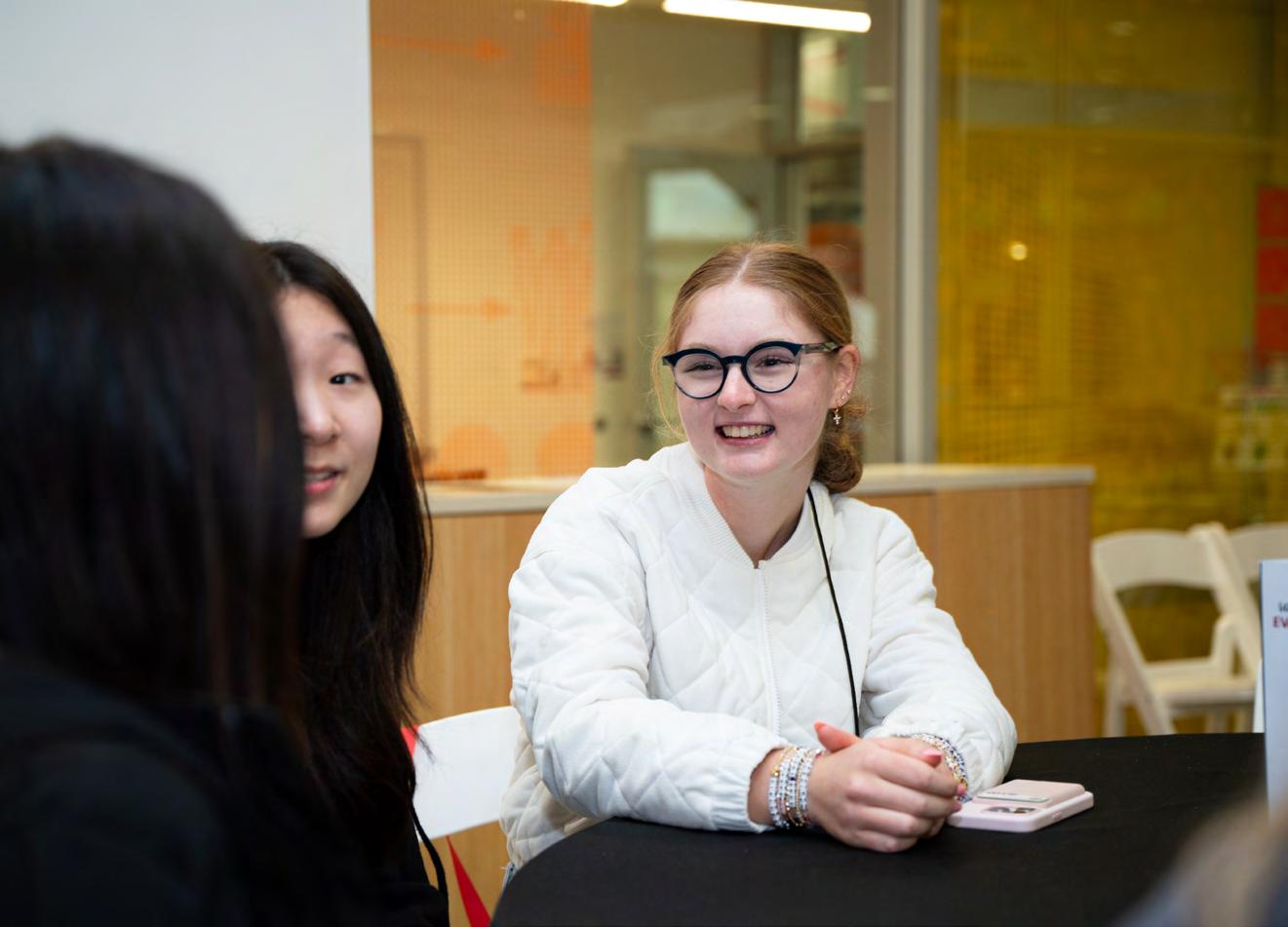


10







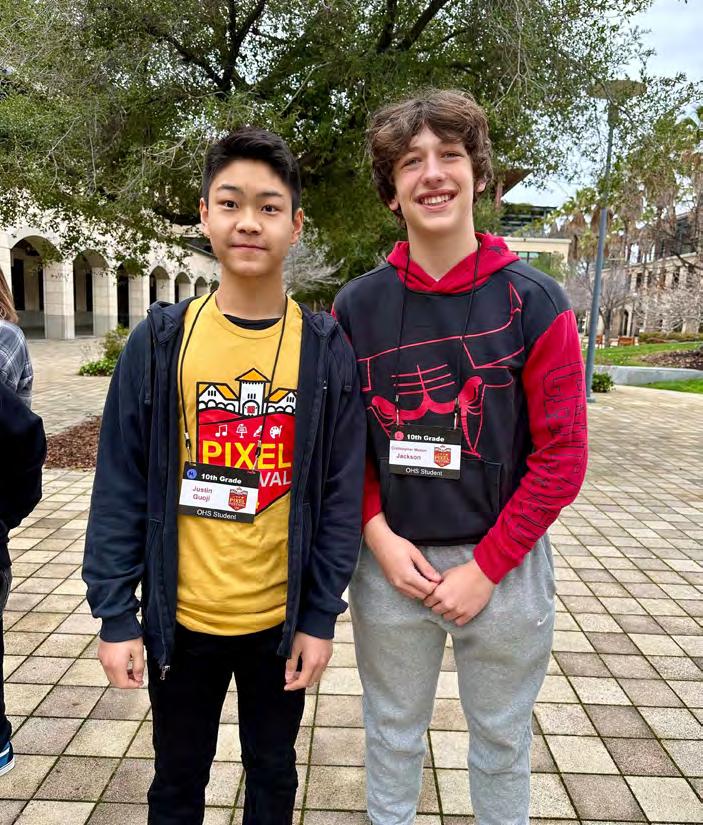

11
 Nicole Varveris
Nicole Varveris
NAIS School Culture Survey
Stanford OHS is conducting an Online Climate Survey using the Assessment of Inclusivity and Multiculturalism (AIM), a flagship tool developed by the National Association of Independent Schools (NAIS).
The AIM Online Climate Survey is an opportunity for all members of our community, including students, parents or guardians, staff, and alumni to share their perspectives and contribute to a deeper understanding of Stanford OHS’s climate and culture.
The AIM Online Climate Survey is confidential, encouraging honest and open feedback. Data collected from the AIM survey will be used to evaluate our progress in meeting diversity, equity and inclusion goals and to identify areas of improvement. Longtime members of the Stanford OHS community may remember the AIM Climate Survey in 2019-20, which led to numerous recommendations and associated projects including:
• Creation of the Director of Diversity, Equity, Inclusion, Belonging and Access role to support sustained work in DEIBA at Stanford OHS
• Creation of the Diversity statement and webpage
• Creation of student affinity groups (Black Student Alliance, LatinX Alliance, APASU) Increasing opportunities for international student and family engagement Instituting required annual and regular DEI-related trainings for all staff and instructors
We look forward to sharing the data with our community and working towards making Stanford OHS more inclusive and welcoming for all.
Professional Development for Instructors and Staff
In alignment with our commitment to providing ongoing DEI professional development all instructors and staff will participate in a day-long professional development workshop focused on combating stereotype threat this spring with Milton Reynolds and Stacey Kertsman.
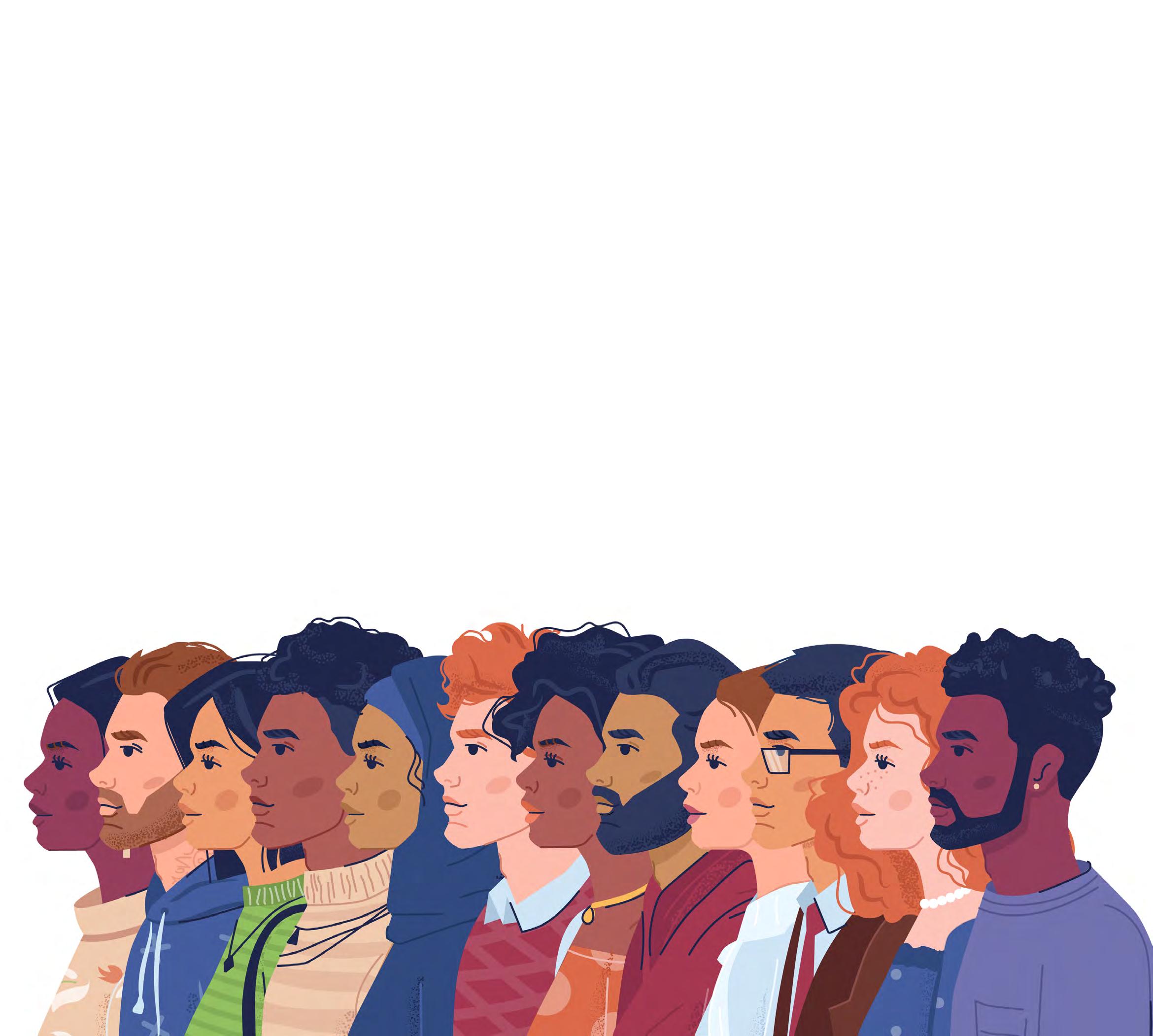
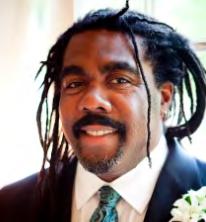
Milton Reynolds is an educator and activist in the Bay Area. Milton spent over ten years as a middle school teacher, a diversity/communications consultant and as a curriculum design specialist and has over 30 years of counseling experience. Dedicated to improving dialogue and implementing innovative solutions to address difficult social issues such as race relations and juvenile justice and delinquency concerns, Milton sustains a high level of engagement in his home community.

Stacey Kertsman’s life-long commitment to social justice has global roots and has evolved in depth and understanding as she taught, learned, and worked around the world. In 2020 after serving as the Dean of Equity Education and Social Impact at Castilleja School she launched the consulting firm, P-Cubed. As an independent consultant she focuses on cultivating diverse cultures for learning, development, equity, activated personal belonging, and leadership growth.
DIVERSITY, EQUITY AND INCLUSION 12
Director of Diversity, Equity, Inclusion, Belonging and Access
Upcoming 2024 SUMMER@STanford
For many Pixels, Summer@Stanford is the experience of a lifetime — no hyperbole! Students reflect back on the S@S experience for years (or decades, if you talk to alumni) as a time when they spent rich and meaningful time with their absolute best friends, forged lifelong memories, and felt creatively and academically inspired by a vibrant and diverse cast of Stanford OHS characters.
Summer@Stanford provides Stanford OHS students with the opportunity to live on the Stanford University campus with their peers, engage in classic Stanford pastimes (fountain hopping and daily Jamba Juices escapades, anyone?), enjoy mini-class activities that are equal parts practical and fun, and better get to know some of the amazingly talented Stanford OHS instructors and staff. Every year, students wax rhapsodic about the joys of spending time with their friends and getting to know each other more deeply. Here are the post-S@S sentiments of some of last

year’s participants (shared with permission):
“Just wanted to say how amazing it was to connect with all of you this year at S@S! It was amazing learning about everybody’s unique backgrounds, and what they’re interested in! I just wanted to say how thankful I am for having such a great house, and how welcoming everyone was.”
— Aarit
A.
“Thank you guys for making my first S@S experience so amazing!! everyone was super welcoming and friendly, and I am once again reminded why I love people at Stanford OHS.” — Ava A.
You may notice a few recurring words in these sweet notes: “amazing” and “welcoming.” And Summer@Stanford truly is both of those things. Whether you’re a returning student or a new one, we hope you’ll join us in making S@S 2024 one for the books!


 by Marra DeGraff Special Advisor to Student Life
by Marra DeGraff Special Advisor to Student Life



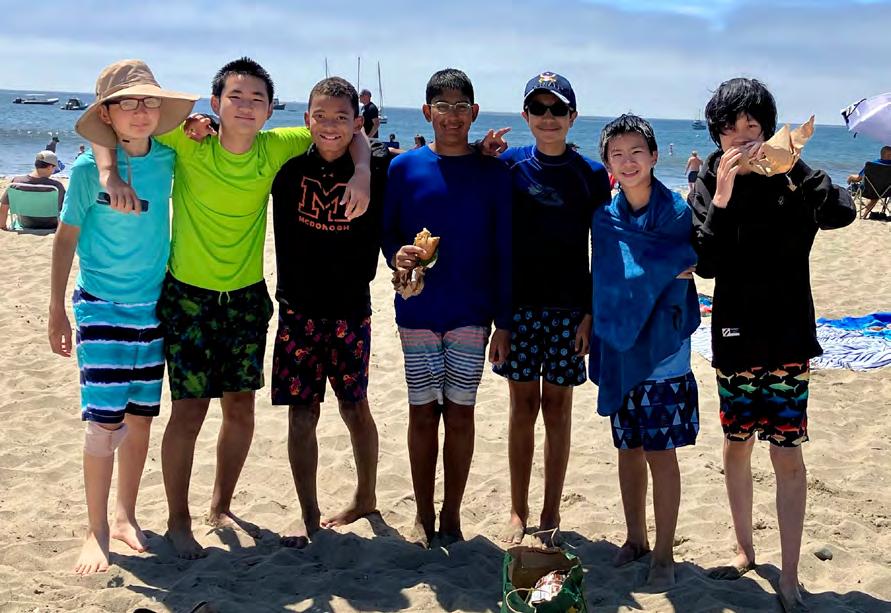

STUDENT LIFE 13
Summer Institutes
As you’re making plans for this summer, here are some opportunities to consider! Stanford PreCollegiate Summer Institutes, a Stanford OHS Outreach Program, is a two-week online enrichment program designed for academically motivated and intellectually curious students currently in grades 8-11. Each course provides an in-depth exploration of a single subject, allowing students to enrich their academic interests while meeting other participants who share their passions. Join our community of students from around the world, and challenge yourself with advanced content not typically found in the high school curriculum.
Two sessions will take place from June through July. Applications are now open, and financial aid is available. The deadline to apply is March 29, 2024.
If you are a Stanford OHS student and will apply for Stanford Pre-Collegiate Summer Institutes, we will acquire and upload your Stanford OHS transcript to your application. The application requires unofficial transcripts from Fall 2021 through Fall 2023. If you attended schools other than Stanford OHS during that period, you will need to add the school and transcript to your application.
If you have any questions about the programs or application support requests, please email us at precollegiate@stanford.edu. We hope to see applications from the Stanford OHS community!
To learn more and apply, visit: summerinstitutes.spcs.stanford.edu
Grades: 8-11
Program Format: Online
Tuition: $3,050
Program Length: 2 weeks
2024 Featured Social Justice Courses
If you are interested in learning more about social justice, we invite you to explore our featured courses. Discover how inequalities arise, learn about healthcare disparities, or study the history of social and political activism. Unpack social justice issues through guided discussions and dialogue with passionate instructors.
Introduction to Ethnic Studies
Students will have the opportunity to cultivate a language and understanding around the principles, methods, and practices that inform
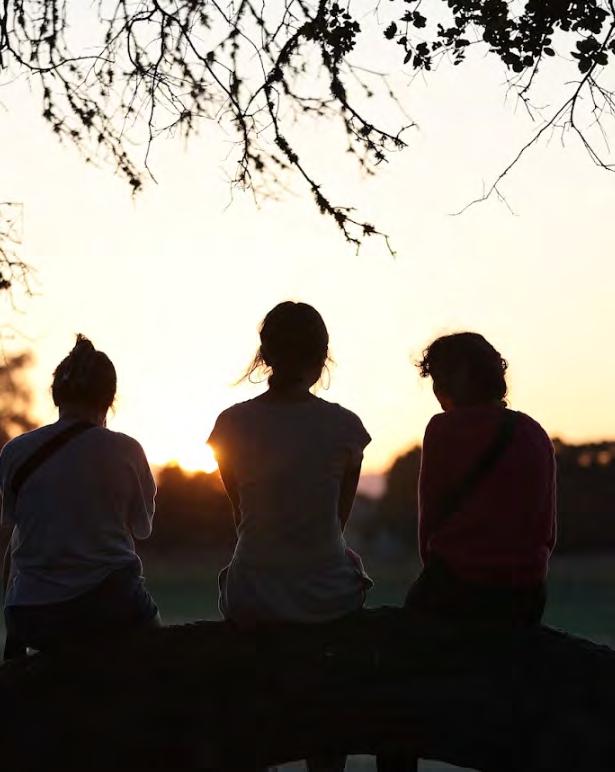
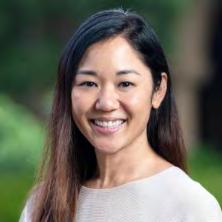 Lauren Lee
Lauren Lee

Marketing and Outreach Specialist, Stanford Pre-Collegiate Studies and Outreach Programs
the field of ethnic studies and movements towards justice. Students will be tasked with placing their own knowledge, disciplinary interests, and experiences in conversation with ethnic studies scholarship to conceptualize a world rooted in justice, equity, liberation, and belonging. Students will become familiar with college-level approaches to ethnic studies, and begin to think about their own role in enacting social change.
Learn More
The History of Activism

Stanford OHS Instructor: Dr. Adrienne Chudzinski
Utilizing an expansive geographic framework, this course will examine the history of social and political activism beginning in the late 19th century and moving through the modern era. Students will have the opportunity to develop and refine their research skills by learning to interpret and analyze primary sources, while adhering to methodologies employed by professional historians. After carefully considering the strategies of social, political, and economic campaigns aimed at securing civil rights, promoting peace, and resisting oppression, students will apply the knowledge they have gained by selecting an individualized research project and producing a podcast episode showcasing their work.
Learn More
Equity in Medicine
Stanford faculty on the frontlines leading efforts to promote DEI in medicine will visit the course to share their experiences with students. Faculty will discuss evidence-based strategies to navigate complex situations and obstacles related to DEI. Students will have the
opportunity to seek guidance from Stanford faculty, will learn how to recognize, confront, and remediate unfair practices, as well as how to be an advocate for themselves and others. We will begin to build a community of peer supporters and find a safe space to discuss belonging in medicine. Students attend lectures and participate in a variety of interactive activities with near-peers and Stanford faculty. This course serves students who are interested in exploring future career paths in medicine, public health, health policy, and biomedical research.
Learn More
Sociology of Inequality
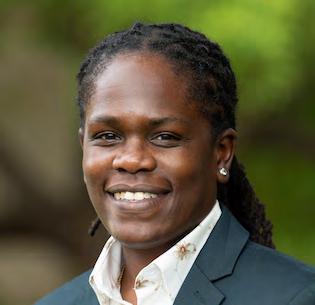
Stanford OHS Instructor: Dr. Elyse Banks
Students will gain a deeper understanding of the complexity of social structures and their often-invisible impact on our lives. The class is taught in an interactive way, with possible methods of learning including lectures, class discussions, video clips, field observations, and student presentations. Throughout the course, students will learn how to ask sociological questions and how to choose the appropriate research method. The students will develop research questions about a form of social inequality of interest to them and will learn how to think critically about academic work.
Learn More
Environmental Solutions

Stanford OHS Instructor: Dr. Jim
Doherty
Students will explore how humans can take action, investigating global solutions, systemic solutions, local solutions, and personal solutions. Students will evaluate solutions through the lens of environmental justice. Team-based projects will involve research and map-making, and individual assignments will help students investigate environmental solutions in their local environments.
Learn More
To view all courses visit: summerinstitutes.spcs. stanford.edu/courses/2024
OUTREACH 14

Weekend

15 Save the date to join us at the Stanford University campus or online for Pixel Gathering & Graduation Weekend 2024 between June 7-9, 2024! The 8th Grade Promotion will be on Saturday, June 8, and the Graduation for Seniors will be Sunday, June 9. Typically, we start mid-day Friday and end mid-late afternoon on Sunday; we anticipate following a similar schedule this year. Some families opt to make it a longer weekend by adding in meetups and other social gatherings with Stanford OHS friends.
Graduation
Join us In-Person or Online Click Here to Order your Yearbook today! YEARBOOKS ON SALE Deadline Extended March 15, 2024! Due to shipping issues, yearbook sales will not be extended after the March deadline.
Pixel Gathering &







A DAY IN THE LIFE OF FULL-TIME STANFORD OHS STUDENTS
16
Piper W.

Hello Pixels! My name is Piper, I am a freshman, and this is my third year at Stanford OHS. During the COVID-19 pandemic, I decided that instead of returning to my old brick-and-mortar school, I wanted to take my schooling into my own hands. This led to my family finding Stanford OHS. I was looking for a school that would be more academically challenging and let me take the classes I was interested in. I traditionally homeschooled for a year while I applied, and then began Stanford OHS in my 7th grade year. The rigor was initially a little hard to adjust to, but I very quickly caught on and learned to manage my time successfully. Now, I am in my 9th grade year and continuing to love Stanford OHS.
I have really enjoyed all the classes I’ve taken since starting at Stanford OHS, and I enjoy the humanities subjects most, including Latin, English, and the Core classes. So far, my favorite class has been the eighth grade Core course, Human
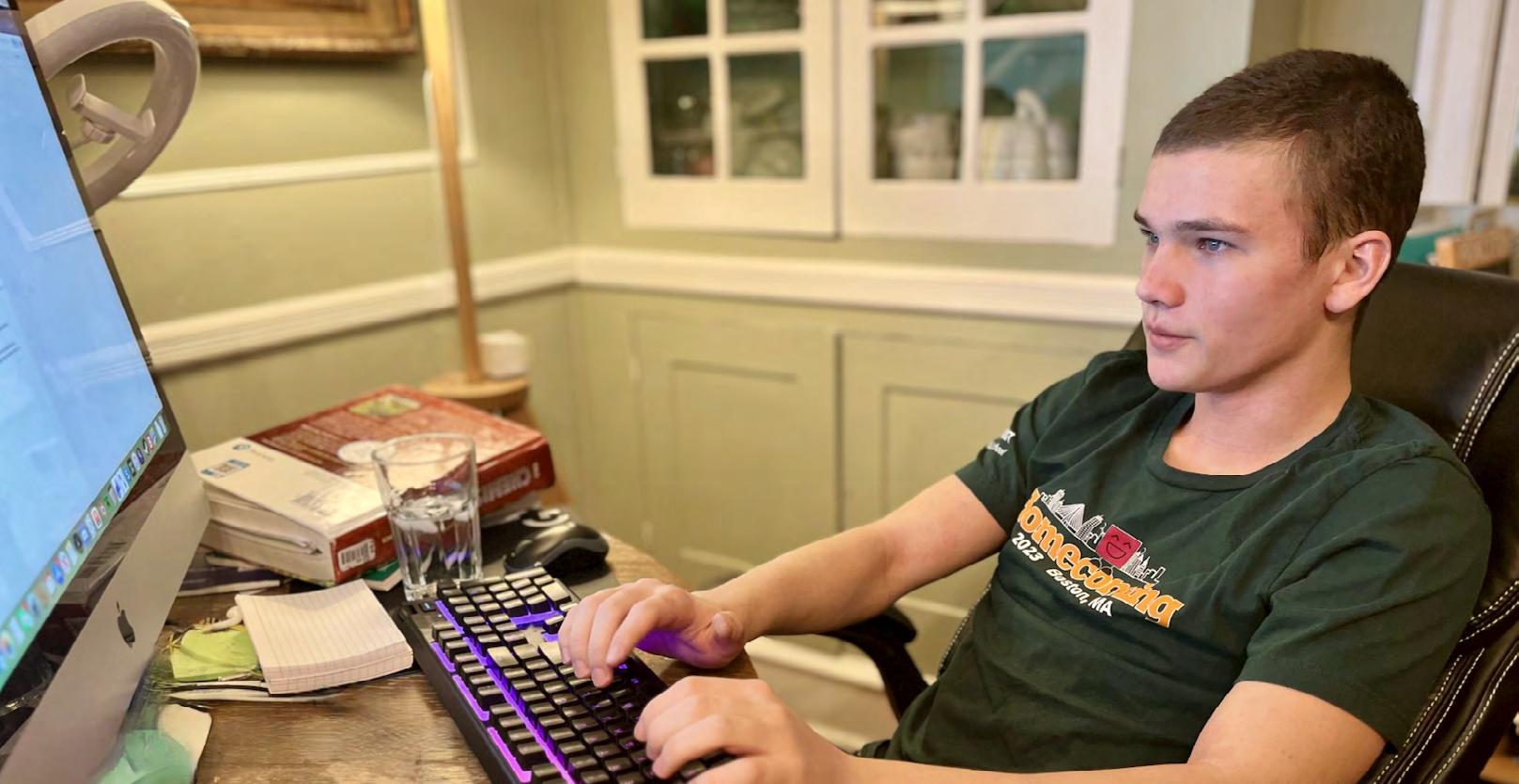
William O.
One thing I really like about Stanford OHS is the flexibility and predictability built into my schedule. Stanford OHS is a flipped classroom model-- similar to a university schedule-- where classes meet two times/week (three hours total). If you do the math, this leaves a lot of flexible time. Notice I said flexible, not free. Classes fill up much of this time because students are expected to learn the material independently and come to class
prepared for high-level discussions.
On a typical Monday/Wednesday, I get up at 8:00 am. My first class is Textual Analysis and Argumentation(TAA) from 9:0010:15 am. Then (on Wednesdays) it’s onto TAA Lab from 10:3011:15 am, followed by Rebellions & Revolutions from 11:30-12:45 pm. After a short lunch break, I get to work reading and watching videos for tomorrow’s classes, or attending an office hour, usually from 1:00-3:30 pm.
Nature and Society. Besides my classes, I am active in Student Government as a member of the Board of Communications, and I also participate in Yearbook. Outside of school, I am very involved in my local community theatre.
My daily routine as a Stanford OHS student varies. I start class early in the morning, generally around 8:00-9:00 AM. Some days I am done with all my classes before lunch, and other days I have one class right after. My weekday afternoons are spent studying and completing assignments, but the flexible nature of Stanford OHS allows me to fit studying around my other activities which I can conveniently schedule in the afternoons.
My schedule also enables me to volunteer my time helping with our local Friends of the Library chapter, which supports my local public library to bring books to everyone in the community.
spend the rest of the evening working on assignments and playing online videos with friends.
Friday, I have my Astronomy homeroom from 12:00-1:00 pm and participate in clubs. Some teachers are available for informal office hours, so I pop in as needed, especially when a test is looming. I check all my upcoming assignments for the weekend and make a schedule to know what I need to do.
I have crew practice from 3:45- 6:30 pm. When I get home, I have dinner and attend my final class for the day, Precalculus, from 8:15- 9:30 pm. Tuesday/Thursday is a lot easier! I’m in my Core class, Methodology of Science: Biology, from 9:00-10:15 am. Next is AP Chem, from 11:3012:45 pm. In between, I do chemistry reading. I have the rest of the day to attend office hours, do upcoming class prep, and do homework. I row from 3:45-6:15 pm, have dinner, and
Weekends are less regimented, but I reserve time on Saturday to do my AP Chem lab, which is usually cool. Sunday nights are spent prepping for Monday’s classes and finishing homework assignments.
Stanford OHS is an excellent fit for me because it allows me to challenge myself by advancing through subjects according to my ability, not grade level or traditional course pathway.
I’m grateful for these nontraditional opportunities at Stanford OHS because it allows me to follow my passion for math and science at a pace I am comfortable with while accelerating my learning.
17
STUDENT AMBASSADORS
Insights and City Lights: Advising at SXSW EDU

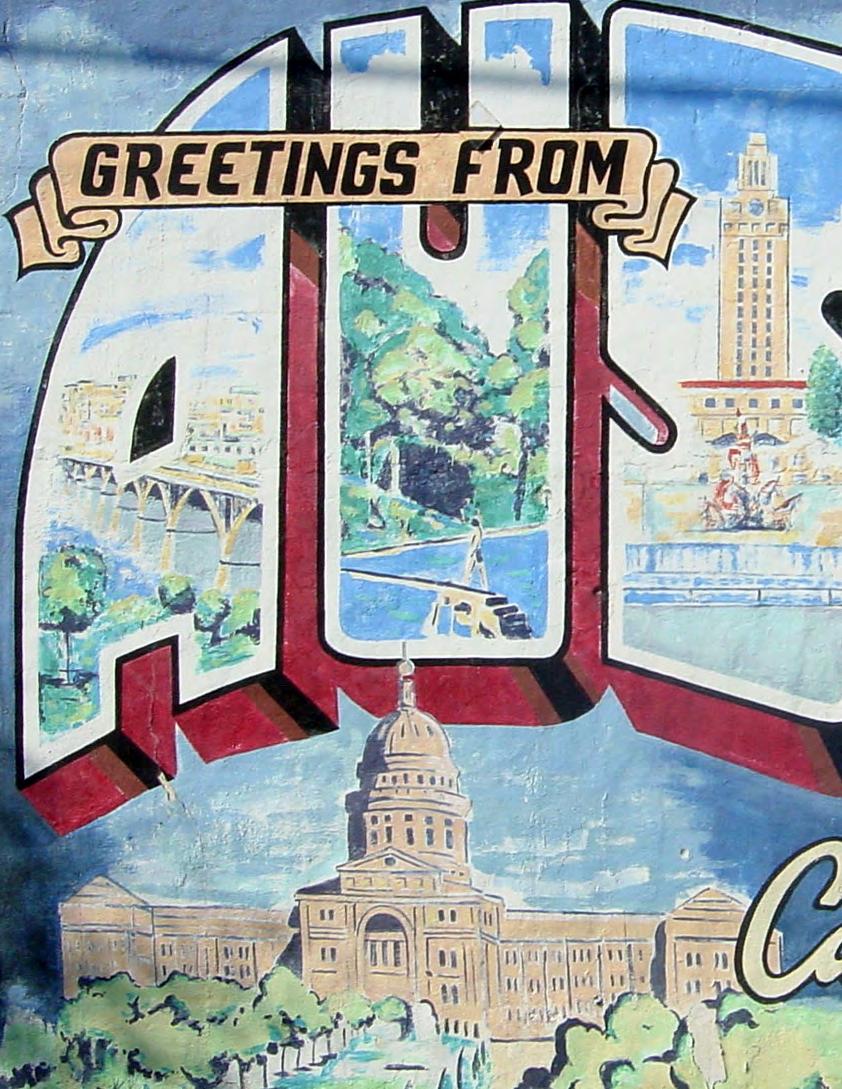
Austin, Texas is a capitol city famous for live music, mouth-watering brisket, and college football. Each March, the city hosts one of the largest festivals and conferences in the world, South by Southwest (SXSW), where more than 280,000 people came together last year. Founded in 1987, SXSW is best known as a music, film, and tech festival but since 2011 it has also provided an educational conference that is packed with excitement, creativity, and inspiration.
In March 2023, the advising team joined more than 8,000 fellow educators at SXSW EDU and will return in just a few weeks for the 2024 conference.
Highlights from the Conference Keynote Speakers
Luma Mufleh is the founder and director of the Fugees Family, Inc., a non-profit organization devoted to working with child survivors of war. She shared her story as the daughter of Syrian refugees and the power of community. She believes that the arts and athletics are the great equalizers in education and are core subjects. “It’s where kids who struggle to succeed in the classroom find success. It’s where they speak the same language. It’s where they learn community.” Mufleh advocates for daily participation in sports and arts, deeply
believing they are the best way to welcome kids and build community. Key takeaway: Learning about the experience of others does not take away from your own experience or identity.
Frank Gehry is a world-renowned architect and his sister, Doreen Gehry Nelson, is a 50-year veteran educator and author. Together, they were the subjects of the 1972 documentary “Kid City” where they teamed up to provide experiential learning to Doreen’s fifth-grade class. Now, at the ages of 94 and 86, the brother-sister duo shared some of their insights on children, education, and life. “Teachers are warriors and brilliant and exactly what society needs right now.” Nelson suggests that teachers should have fun in their classrooms, create joy for themselves and their students, and utilize purposeful learning experiences. Ghery reminded the room that too many possibilities are edited out because of the way “things are,” but you don’t have to have or know of an end product, you just need to start with an idea.
• Key Takeaway: Weather the storms of being accepted for who you are.
Conference Sessions
The conference offered 362 different sessions with more than 1,000 presenters.
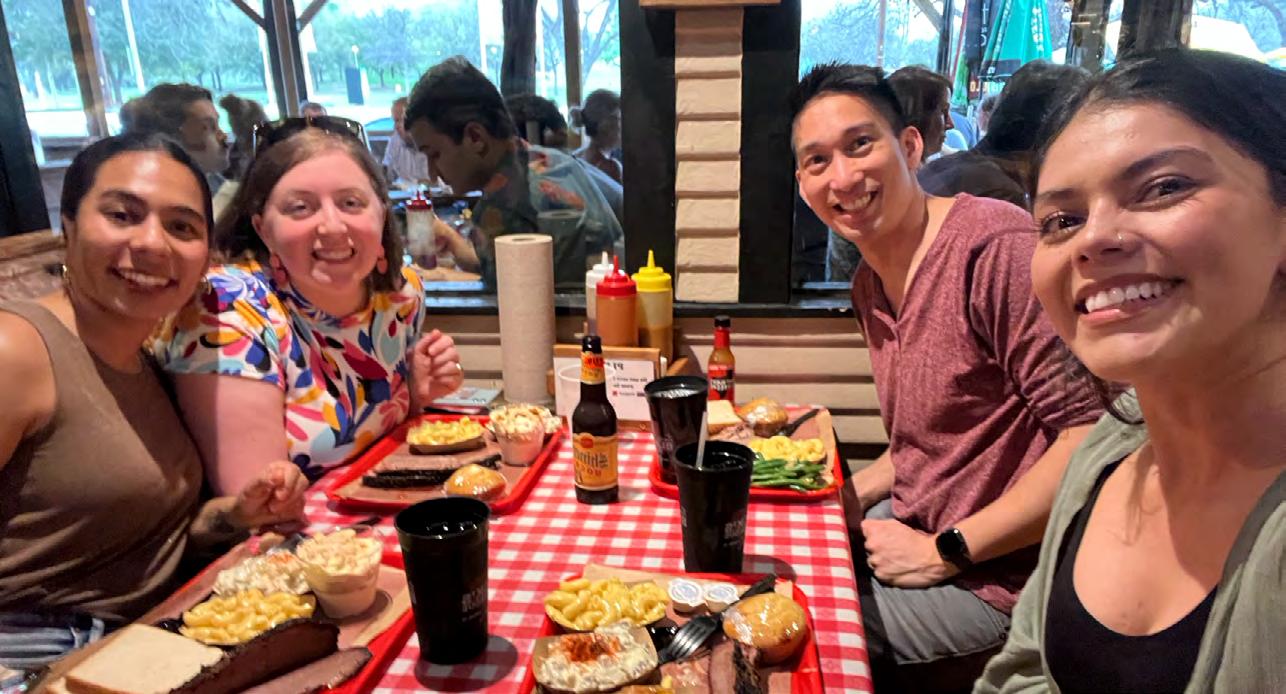
In addition to more traditional sessions, there were opportunities to watch educational documentaries (the team really enjoyed “All Who Dare”), participate in interactive sessions decorating a new pair of tennis shoes you then got to take home, hear from Olympic figure skater Kristi Yamaguchi, and take a music tour around the city. Here are just a few highlights from a few of the sessions the advisors got to attend:
Here’s How to Actually Design the Future of Schools asked big questions like “What is your vision for learning in 2075?” and “What ecosystem do we need to support now to make these visions happen?” This was a roundtable session where participants were able to brainstorm together, share experiences, and ultimately prepare a vision to share with the group.
• Key Takeaway: Take inspiration and creativity from everything around you!
Cardboard and Consoles was meant to inspire teachers to use games in their classrooms. The presenter teaches in a small rural school on the East Coast and showed how he has successfully integrated games students already know how to play to think through and solve problems that matter to them. He shared the principles of “game-based thinking” which encourages students to use mechanics and systems, trials and errors, stories and quests, rules and guidelines, and choices and consequences.
• Key takeaway: Design is about the process, not about whether or not you made something cool in the end.
How Educators Can Support Student Activism was led by a non-profit leader, lawyer, and student advocate. The session suggested that educators see
Middle School Academic Advisor
ADVISING 18
Kellye Smith


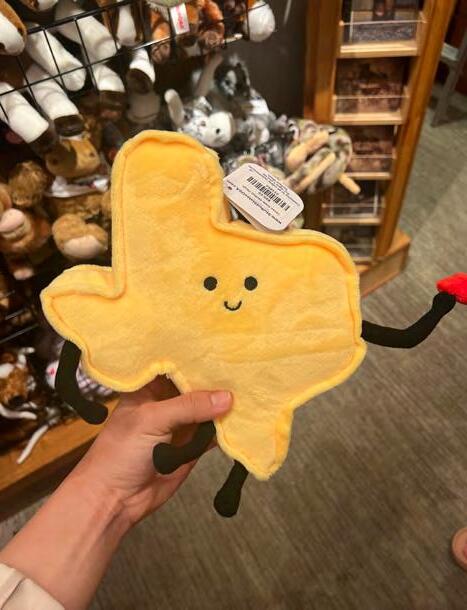
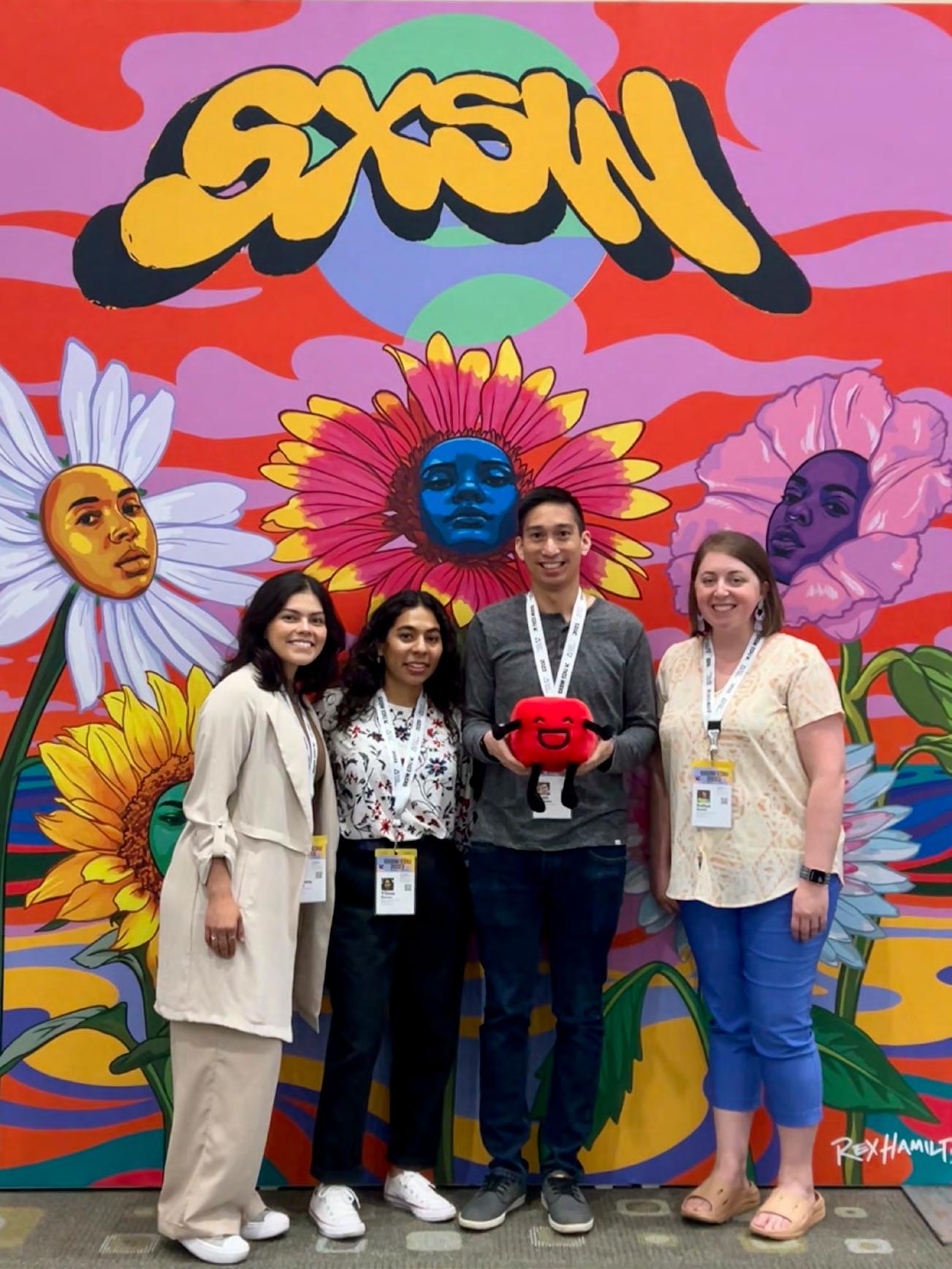
student activism and organizing as a great first step into civic engagement. Students can learn a lot of skills through activism and it allows them to connect with others who share similar views, passions, and concerns. The session leaders reminded educators that they should not be the lead actors in student activism stories but should work beside the students to find their appropriate roles. Schools should make sure they are
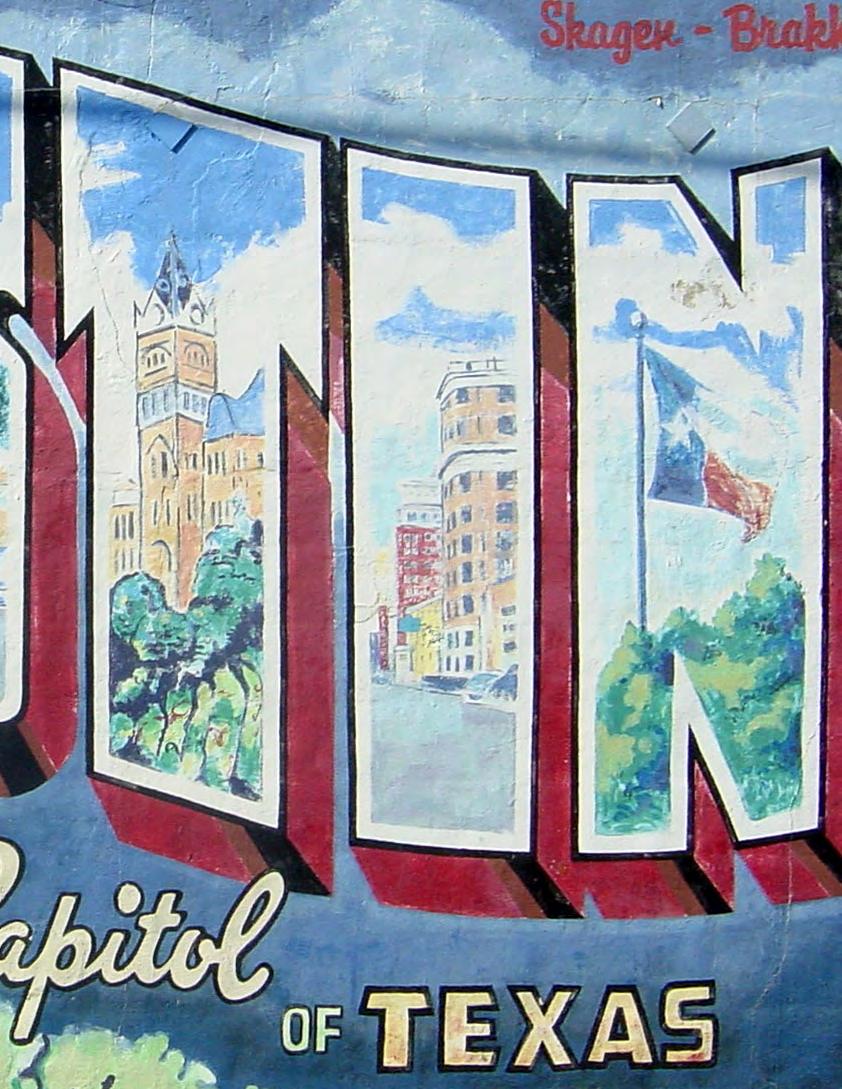
creating good, equitable, and innovative policies and should always choose healing over punishment.
• Key takeaway: Speak as a person who cares about things, not as an educator who sees what the students are going through.
Real Talk with Two National Teachers of the Year brought together Kurt Russell, the 2022 NTOY, and Rodney
Robinson, the 2019 NTOY. These two inspiring educators shared their paths, defeats, and victories inside and outside the classroom. They emphasized that what students need more than anything to learn something is time and that we should make sure we give it to them.; time to read, experience, discuss, and explore.
• Key takeaway: No matter what you’re into, lean into it and be about it. Kids recognize authenticity.
Looking Ahead
The Stanford OHS advising team is anxiously awaiting a second year of SXSW EDU. Just as Stanford OHS prioritizes providing enriching in-person experiences for students and families, this is a special time for the team to be together. Last year, they enjoyed barbecue at Terry Black’s, Jenni’s ice cream, live dueling pianos, and a visit to the capitol building. While there will certainly be more adventures and good food this year, here is something getting each person excited for the conference:
• Ryan Salvador, Director of Academic Advising: From design theory to TTRPG-inspired learning, I’m excited to engage with the creativity in resources and approaches to education both at the classroom and school/society level. And I’m always down for some barbecue.
• Yliana Gomez, Senior Academic Advisor: I am excited to delve into conversations about the real-life challenges that educators encounter on the front lines of education!
• Estefany Arenas, High School Academic Advisor: SXSW nurtures a vast atmosphere for growth and innovation within education, and it’s always exciting to have the opportunity to learn and engage with diverse perspectives, projects, and ideas people in this field bring forward!
• Kellye Smith, Middle School Academic Advisor: It’s so exciting to get to go back to such a wonderful city and inspiring conference. I plan on taking advantage of more of their non-traditional offerings, especially the films, and seeing how I can bring some of that creativity and passion back to Stanford OHS with me.
19

GIVING THANKS!
Congratulations, and thank you to our extraordinary Stanford OHS community! Your support helped make this year’s Annual Fund campaign a tremendous success! We achieved amazing participation at every grade level and greatly appreciated your enthusiasm and high impact contributions during the Monster Match, Winter WonderMatch and Marathon Match campaigns. The ‘Instructor Gifts’ made ‘In Honor of’ your student’s faculty, staff, and advisors were all warmly received. Thank you for your incredible kindness! The funds raised are already benefiting our students, faculty, and staff, through enhanced Student Life initiatives, curriculum innovation and professional development.
Stanford OHS is excited to continue to fully support more than a dozen unique in-person and online opportunities in the 2023-2024 academic year. Some examples include:
• Spring Trips to Washington D.C. and Baja: financial support for students and staff to attend
• Summer Trips to London and the Galapagos Islands: financial support for students and staff to attend
• SXSW EDU: Sending a group of seven staff and instructors to attend and participate in the conference in March 2024
• Ethics Bowl: financial support for students and staff to attend
• Model United Nations: support for student attendance at the MUN event; sent two staff members to guide the team of students in February 2024
• Robotics competitions: supporting staff and instructor attendance at events including the Berkeley Science Bowl; student involvement and club funding
• California Junior Classical League’s Latin Convention: sending a delegation of students and two instructors in April
• Professional Conferences: support for instructor and staff
PARENT COMMITTEE
Lindsay Amann
Kate Dao
Nicola Davies
Alison DeLorenzo Juricek
Jessie Djata
Nell Forgacs
Gillian Griffiths
Rashmi Gupta Jing Hu
Jiyoon Im
Paul Jessen
Lyudmila Kan
Ping (Celia) Liu
Nora O’Hara
Lindsey Own
Shobana Raghu
Caroline Rocky
Meera Scarrow
Gita Shah
Jamie Whittenburg
Annie Wu
travel and attendance at the New Directions in the Humanities Conference at Sapienza University of Rome and the ISCA School Counselors Conference in Athens, Greece
• NAIS People of Color Conference: financial support for a delegation of staff and students to attend the conference in November 2023 in St. Louis
• Homecoming: in-person event in Cambridge, Massachusetts in November 2023
• Pixel Festival: in-person event on Stanford campus in February 2024
• Pixel Gathering and Graduation Weekend: Prom, Carnival, Graduation, and more!
We couldn’t have accomplished this without the tireless efforts of our Annual Fund Parent Committee, the guidance and support of our Steering Committee, our collaborative partnership with Student Life and OHSPA, and, of course, everyone who generously participated in the Stanford OHS Annual Fund. We are grateful for your giving spirit!

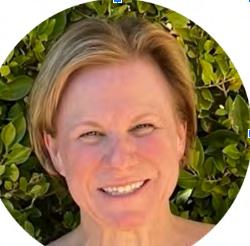
SCHOOL COMMITTEE
Dr. Tomohiro Hoshi, Head of School
Josh Carlson, Director of Business Operations
Dr. Meg Lamont, Assistant Head of School
April McElrath, Financial Analyst
Louise Schultze, Marketing and Outreach Specialist
Christine Van Winkle, Associate Director of Business Operations
Katherine Pacholyk and Melanie Palance Stanford OHS Annual Fund Co-Chairs
ANNUAL FUND 20
Katherine Pacholyk and Melanie Palance, Co-Chairs
 Louise Schultze
Louise Schultze
Investing in His Future: Alum Credits Stanford OHS for His Success
We recently had the chance to sit down for an interview with a distinguished alumnus, Jake Chasan, from the class of 2016. Jake started his Stanford journey in high school and is returning to the University campus for his MBA in the Class of 2026.
Just like lightning, inspiration can strike at any time. For class of 2016 alum Jake Chasan, it was during his first class at Stanford Online High School 14 years ago, Introduction to C Programming. Now a successful Investor at Sapphire Ventures in Menlo Park, Calif., Jake credits this time at Stanford OHS for launching his career trajectory.
“I’ve always liked building things,” Jake said. “I knew from a young age that computer programming would allow me the canvas to create my future.”
Jake attended secondary school at The Bishop’s School in La Jolla, Calif., and recognized that although there was a strong liberal arts foundation in the school’s curriculum, he would need to seek education elsewhere to deepen his understanding of software.
“I tried to learn programming on my own through tutorials, but felt like I didn’t have the fundamentals,” he added.
The opportunity to study through Stanford’s Pre-Collegiate Studies programs allowed Jake to learn computer science at a university level from a young age.
Throughout high school, Jake
sought out these courses at Stanford to supplement his education attending the school part-time, taking courses on the fundamentals of C and C++ programming, algorithms, and statistics. He believes that putting knowledge from the classroom into practice is the best way to improve his skills, and his interests led him to publish more than 20 applications for iPhone to-date, of which several have reached the top charts, and one was featured in Business Insider as part of their “10 Things on Wall Street” piece.
“I credit a lot of my success to Stanford’s Pre-Collegiate Studies programs and specially the Stanford OHS program,” Jake said. “What blew my mind about my first class at Stanford OHS is that the professors were willing to work with me


as much as I wanted to learn. No question on the topic at-hand was off limits. That was critical for me because every program I’ve written today stemmed from that original Intro to C class. Many programmers start their computer science journey in their first year of college, but I learned it as a freshman in high school.”
To Jake, programming languages are akin to spoken languages. “I think of myself as speaking C fluently and have dreamt in code,” he recounted.
While a high school student in La Jolla, Jake joined classes virtually, and during the summers, Jake participated on-campus through summer college and Summer@ Stanford. After high school, Jake attended Duke University for undergrad, studying Computer Science and Economics with a concentration in Finance. He graduated Phi Beta Kappa, Magna Cum Laude, with distinction in both subjects a semester early.
After Duke, Jake started his career on Wall Street as an investment banker at Goldman Sachs in New York (even appearing in Mark Wahlburg’s show “Wahl Street”), where he managed to work on $65B+ of completed transactions including
Marketing & Outreach Specialist
ALUMNI
22
Jake on Stanford Campus as a Pre-matriculation Studies Student in Summer 2013.
more than 35 IPOs, 10 Mergers & Acquisitions, and 40+ Capital Raises, which touched over 300,000 end jobs during the COVID-19 pandemic. He also worked on the development of Goldman Sachs’ transaction automation software suite known as Intelligent Execution, which is still used today. After Goldman, Jake joined Sapphire Ventures in Menlo Park to focus on venture capital and growth equity investments in the software sector.
Now Jake is returning to Stanford for his MBA from the Graduate
School of Business. From campus, he hopes to start his own business.
When asked for advice to the next generation of Stanford Online High School students, he said, “Stay curious.” Continuing that curiosity has driven him through his educational and professional career.
“Pulling at the thread of my innate curiosity led me to learn computer programming, to build and ship software applications, to pursue my career on Wall Street, and I know one day will drive me to start my own company.”
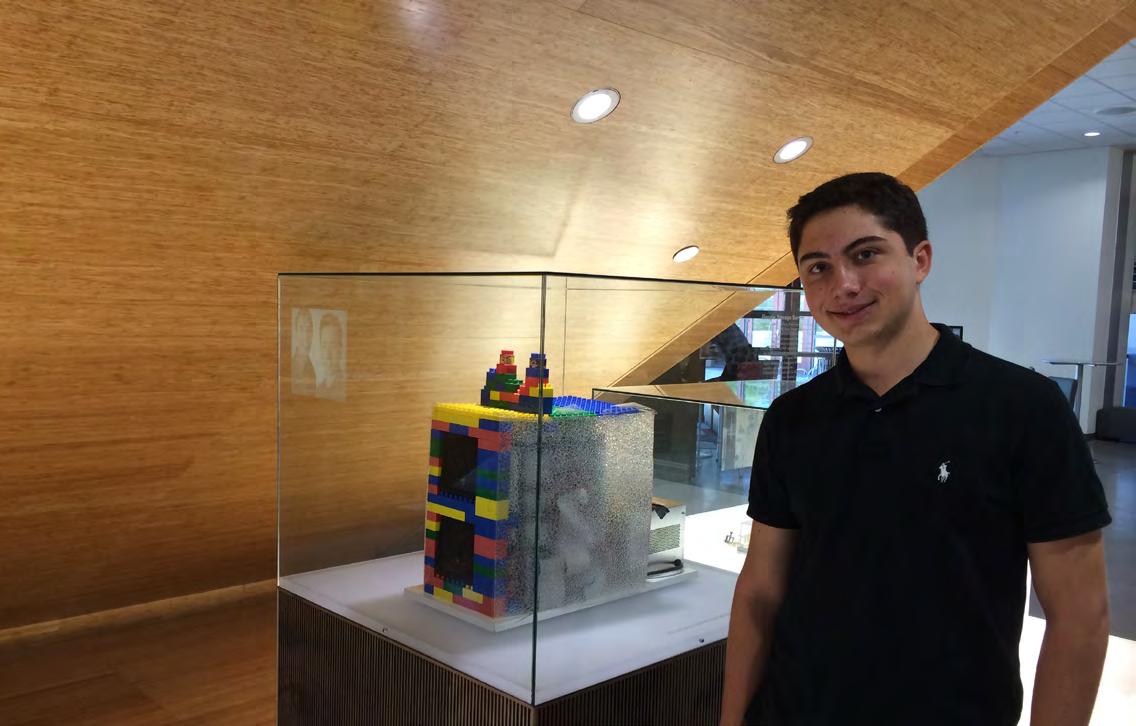
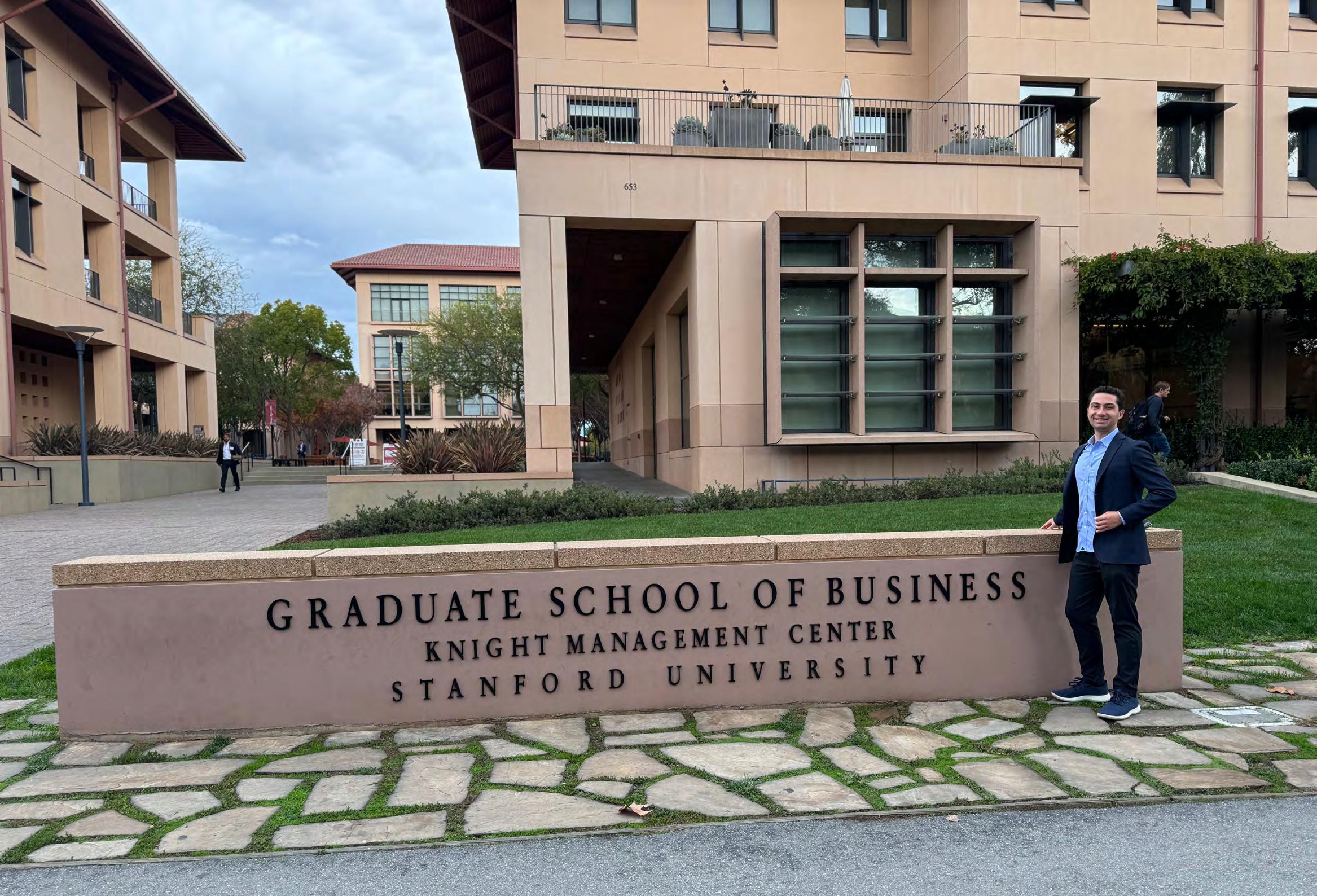 Jake in the Jensen Huang Engineering Center at Stanford University as a Pre-matriculation Studies Student in Summer 2014.
Jake in the Jensen Huang Engineering Center at Stanford University as a Pre-matriculation Studies Student in Summer 2014.
23
Jake in front of the Graduate School of Business at Stanford University as an MBA Student in Winter 2023.
What Are we reading?
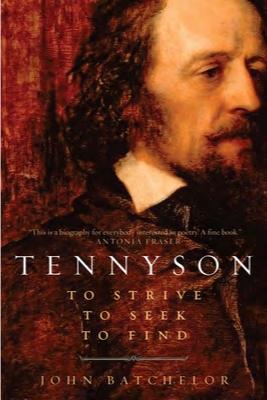

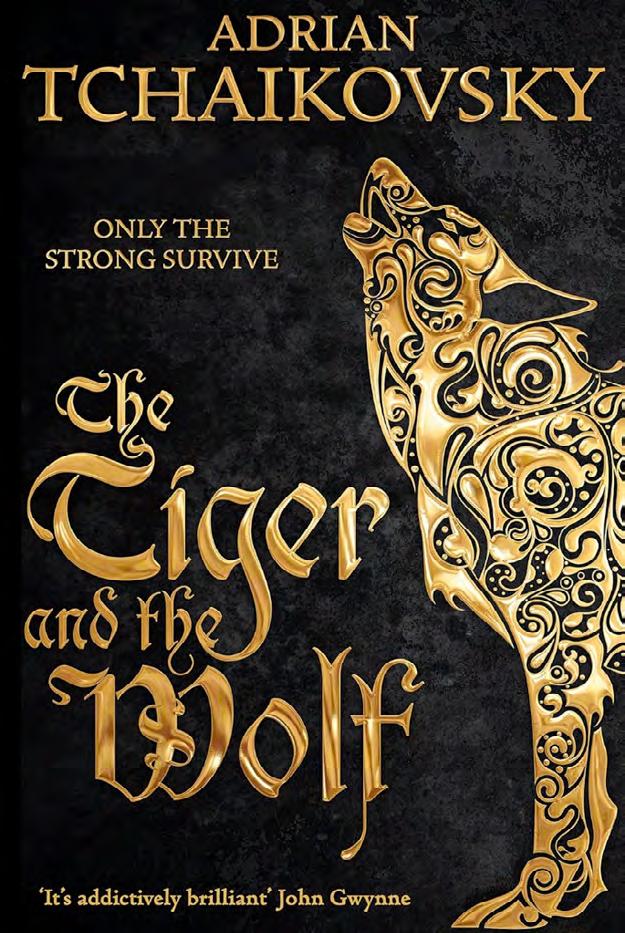
5 I’m reading the recently published Tennyson by John Batchelor. Lots of fun—scandals, hair styles, critical analyses, historical context. What a weirdo.
5 I am reading Predictably Irrational: The Hidden Forces That Shape Our Decisions by Dan Ariely. This is an easyto-understand primer on behavioral economics. Traditional economics supposes humans make perfectly rational decisions, but these models are too simple because humans also act on emotion. The author argues with experimental data that not only do humans overpay, underestimate, and procrastinate, but also do so in predictable and systematic ways.
5 I am reading The Tiger and the Wolf by Adrian Tchaikovsky. It’s an interesting take on colonialism with people who can shapeshift into a specific animal, depending on their tribe. I had read Tchaikovsky’s Children of Time, and I wanted more from him—great world-builder.

5 I just finished two books. One is The Wake by Paul Kingsnorth, which was a Hot Book in 2014; I missed it then. It’s about the Norman Conquest of England, and it’s told in an idiom inspired by Old English (Kingsnorth calls it a “shadow language”). The halfmade-up language means that it takes a *lot* of attention and brain power. I’m glad to have read it and want to track down the two sort-of-sequels.
The other, which went much faster, is The Heaven and Earth Grocery Store by James McBride. It’s the first McBride that I’ve read, and I will read more. It’s set in the early 1930s in a fictional small town in Pennsylvania in a neighborhood that is mostly Black but still partly Jewish, and it’s about cross-racial friendships and alliances. It’s one of the best contemporary literary fiction novel that I’ve read in the past few years.

24
Jason Morphew
English Instructor
Bil Hrusovsky
Writing and Tutoring Center Instructor
Dr. Lisa Hicks
English Instructor
Kaitlin Hughes
Academic Records Manager
COMMUNITY
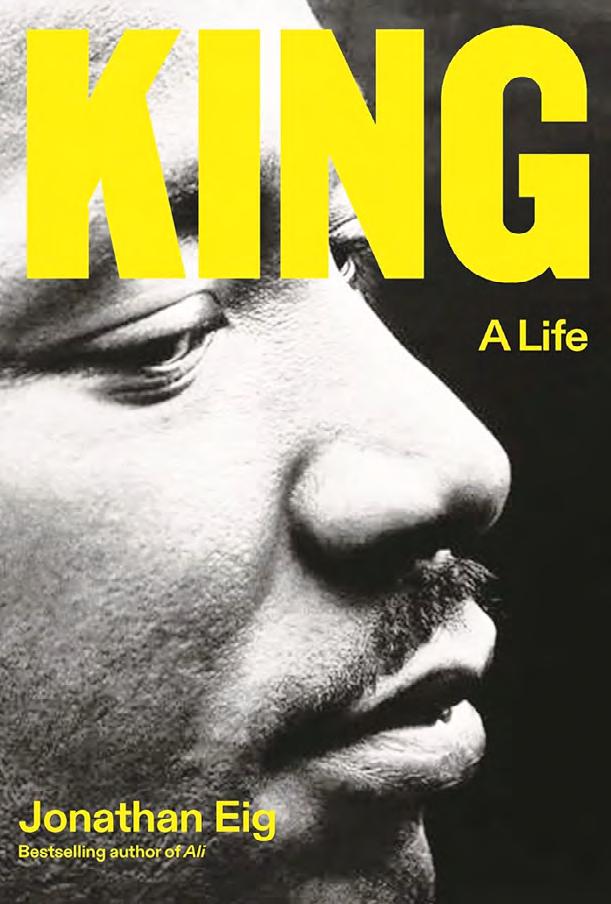

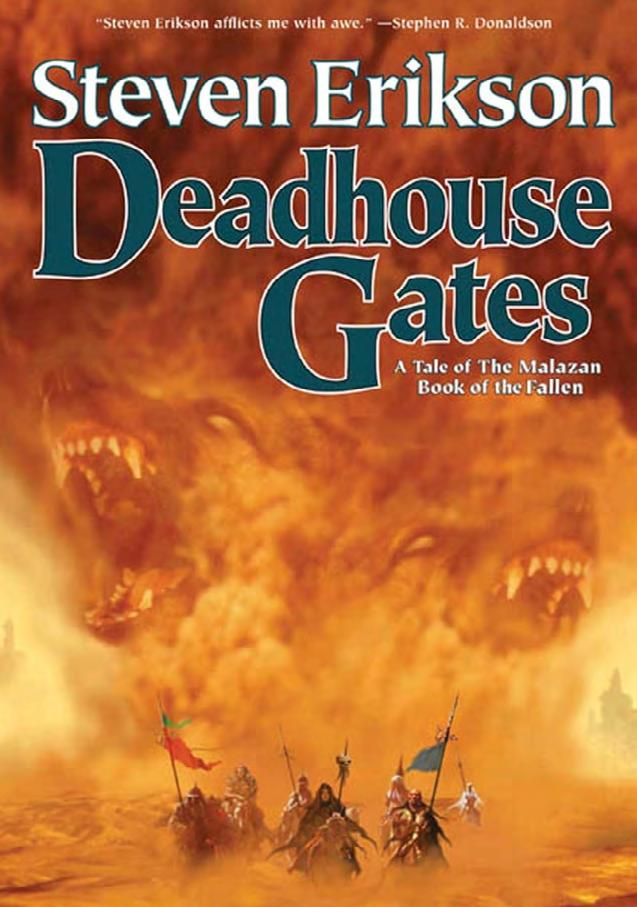



Uncle Tom’s Cabin by Harriet Beecher Stowe. I am reading this novel for the Classics Book Club at my local public library. I have mixed feelings about this book. It is very well plotted--a melodramatic page-turner of a book. And as a teacher of TAA, I have found this book to be fascinating to think about in relation to the other texts that we read in the course. The book has a clear and admirable political goal: to turn public opinion against slavery. And she was successful in this project. (There is an apocryphal myth that Abraham Lincoln greeted her when they met in 1862 by calling her, “The Little Woman who made a Great War.”) But the book also has a very out-dated set of ideas about race. I can see how people in the nineteenth century co-opted this book to use it against its own politics. Stowe sets in motion a series of portrayals that were easily turned into racist stereotypes. TAA students might enjoy reading this Incidents in the Life by Harriet Jacobs, because Jacobs is obviously indebted to Stowe in terms of her style of narration. But Jacobs does a better job of building an argument against slavery because she, writing as a Black woman herself, does not portray her characters in ways that reaffirm white supremacy. I feel like I will be a better teacher of Jacobs for having read Stowe, but I am glad that we focus on Jacobs in TAA.
25
Dr. Claire Dawkins
Adam Lips
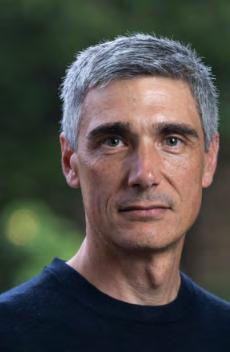
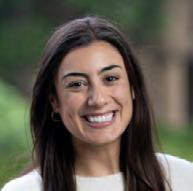 by Natalie Cooper
Associate Director of College Counseling
by Natalie Cooper
Associate Director of College Counseling
Getting to Know Your College Counselors
The final installment of this series wraps up our interviews with Stanford OHS’s college counselors, with a focus on getting to know them a little deeper, learning about their own college experiences, and receiving some advice on the college process for Stanford OHS students.
Adam Lips earned an Ed.D. in Higher Education Management from the University of Pittsburgh, an M.A. in teaching from the University of Portland, and a B.A. in Psychology from the University of Notre Dame. As a doctoral candidate he focused his research efforts on higher education policy issues in the areas of college admission and financial aid. Prior to enrolling in his doctoral program, Adam worked in college admissions and financial aid at Emory University and Loyola University Chicago. Outside of work, Adam enjoys spending time with his family—his wife Carol, daughter Anna, and their dog Hazel.
Q: What factors were important to you in your college search? Why did you decide on Notre Dame?
A: I did not have a specific academic interest coming out of high school, so I was looking for a place that was well-rounded with options. Once I knew that was covered, I focused on “non-academic” factors. Some of them were pretty random. I remember aesthetics being important to me (I wanted it to look like “college”). I was nervous about Greek life, so I was aware of the role it would play. I enjoy sports, so I wanted to be at a place where I could go to games and where athletic games were a social event. I wanted to be away from home (Chicagoland) but not too far. ND checked all of these boxes for me and I was fortunate enough to get in.
Q: What was your favorite class in college?
A: Statistics. This had less to do with the course content (I took many more interesting classes!), and more to do with the situation. My first few semesters of college were extremely challenging and I was not adequately prepared. It was the first class I took where I felt in control of the subject matter and it helped me become a more confident student. From that point forward I was more comfortable in the classroom, and I was able to worry less and get more out of my academic experience. I am calling this my “favorite class” because of what it meant for my overall college experience.
Q: What do you like most about Stanford OHS?
A: I appreciate that the people I work with are intelligent, thoughtful, and supportive. The environment allows us to try different approaches to college counseling that might be different from those at a traditional school. It has helped us to develop a program that provides good support to students and allows us to really get to know them. Obviously the students are great, and I learn from them every day.
Q: When you’re not providing sage advice to our students, how are you spending your time?
A: I really like to be outside. I spend a lot of time walking my dog. I also golf, ski, and fish and enjoy traveling with my family.
Q: What advice do you have for students as they think about college at this time of year?
A: I try to emphasize that students focus on the positive, reflect on the things that they have done, and consider how they will build on those accomplishments in the future. Students who do this and who have an open mind about how different colleges can support their goals are the happiest and most successful.
COLLEGE COUNSELING
HAPPENS
SCIENCE
Science Fun During Pixel Festival
Science-themed student workshops held during Pixel Festival.
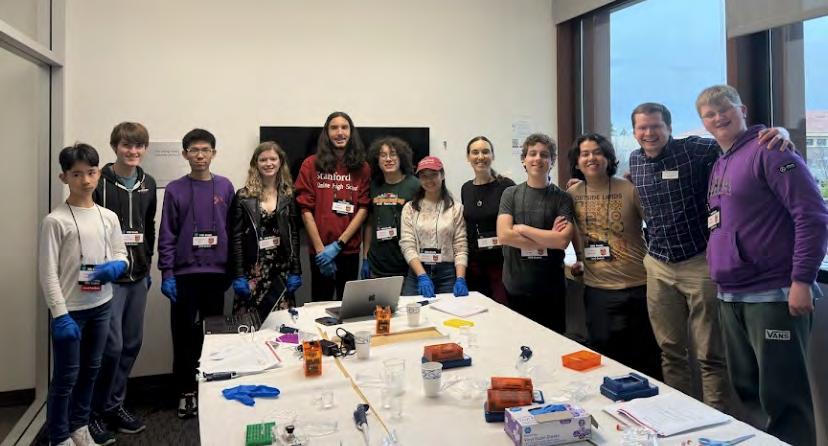

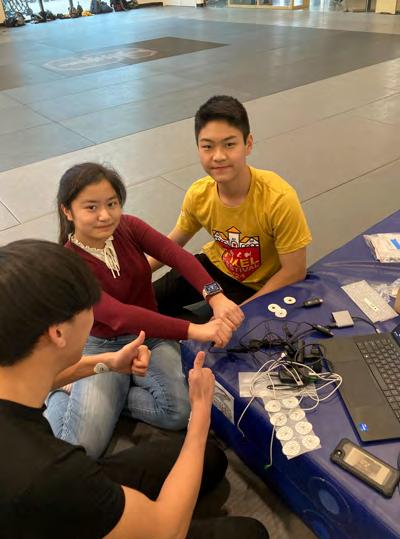



HAPPENS
ACADEMICS 27
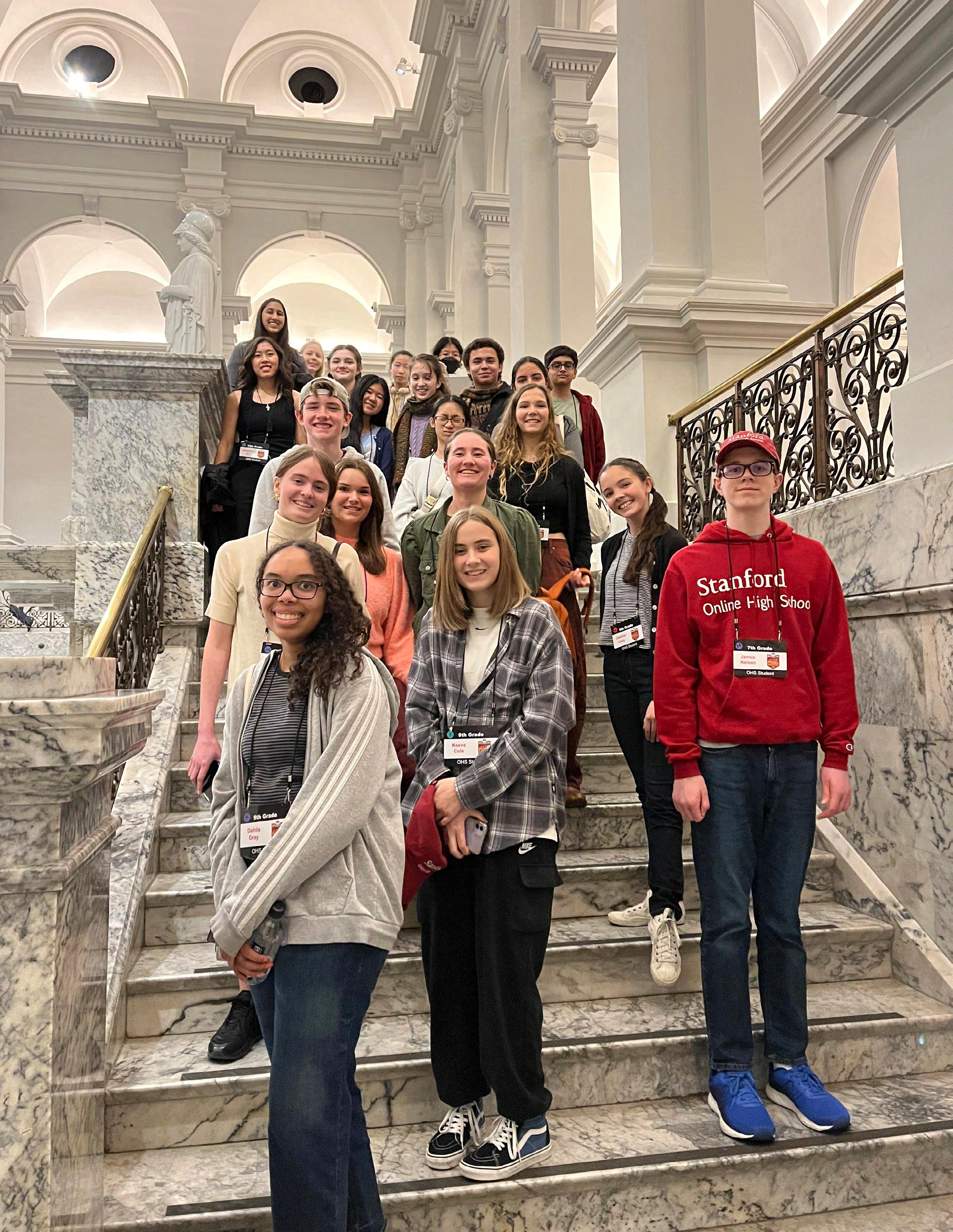
415 Broadway Academy Hall, Floor 2, 8853 Redwood City, CA 94063 ohs.stanford.edu CONNECTION 28


















 Assistant Head of School
Anthony Smith
Assistant Head of School
Anthony Smith









 by Dr. Greg Nuckols
Director of Counseling
by Dr. Greg Nuckols
Director of Counseling
 by Marra DeGraff Special Advisor to Student Life
by Marra DeGraff Special Advisor to Student Life



























 Nicole Varveris
Nicole Varveris












 Lauren Lee
Lauren Lee

























 Louise Schultze
Louise Schultze



 Jake in the Jensen Huang Engineering Center at Stanford University as a Pre-matriculation Studies Student in Summer 2014.
Jake in the Jensen Huang Engineering Center at Stanford University as a Pre-matriculation Studies Student in Summer 2014.












 by Natalie Cooper
Associate Director of College Counseling
by Natalie Cooper
Associate Director of College Counseling






